

71+ Free Social Problem-Solving Scenarios
Do you have kiddos who struggle with their social problem-solving skills? Teach your students the simple process of how to solve a problem along with having them review how well their solution worked or didn’t work.
Learning to problem solve is an essential skill that is used not only throughout childhood but also into adulthood. Social problem solving is the ability to change or adapt to undesirable situations that arise throughout our day. On a daily basis, a child will encounter social problems that they will need to solve. Anything from arguing with another student, to hurting a friend’s feelings, to having a difficult conversation, or working with others.
Start with Small Problems
Many of the “problems” children encounter are often small problems which the child may be over-reacting to, such as wanting a different coloring crayon or wanting to be first in line, however, these small problems are still very real to the child. Practicing problem-solving with these small problems can be a great learning opportunity. Children can practice problem-solving with a small problem which can help them learn how to handle bigger problems in the future.
Problem Solving Importance
Social problem-solving skills are critical to a child’s social interactions, personal and professional relationships. A child’s ability to handle change, cope with stress, and handle challenges improves with a child’s ability to successfully solve social problems.
The ultimate goal is that the child will be able to solve social problems all on their own, but until they can independently solve a problem they will need to learn how to communicate and self-advocate to positively solve their problems.
Students with Autism Problem Solving
Students with autism and other social challenges need to learn to problem solve as well. These social problem-solving skills will help them throughout their childhood and into their adulthood. Children can be taught how to problem solve through a guided process of breaking down the problem and using simple steps to solve the problem. Learning specific steps to problem-solving can allow children to remember how to solve a problem when they become overwhelmed or stressed. Although learning to solve a problem independently can take some time and practice it is well worth the investment to have a child who can eventually solve most social situations in a positive manner on their own.
Make Problem Solving Easier with this Freebie!
Download yours today to get started.
Problem Solving Form
Teach your students the 4 steps to becoming a social problem-solver.
- Identify the problem. For instance, start by having your student identify the social problem.
- Create three solutions. Also, have your student come up with three different solutions that they could use to solve the problem that they identified.
- Identify the consequences. Then, identify the consequence for each individual solution.
- Pick the best solution. Lastly, have your student identify which of their three solutions is the best choice Then have your student put into words why they think that solution is the best solution.
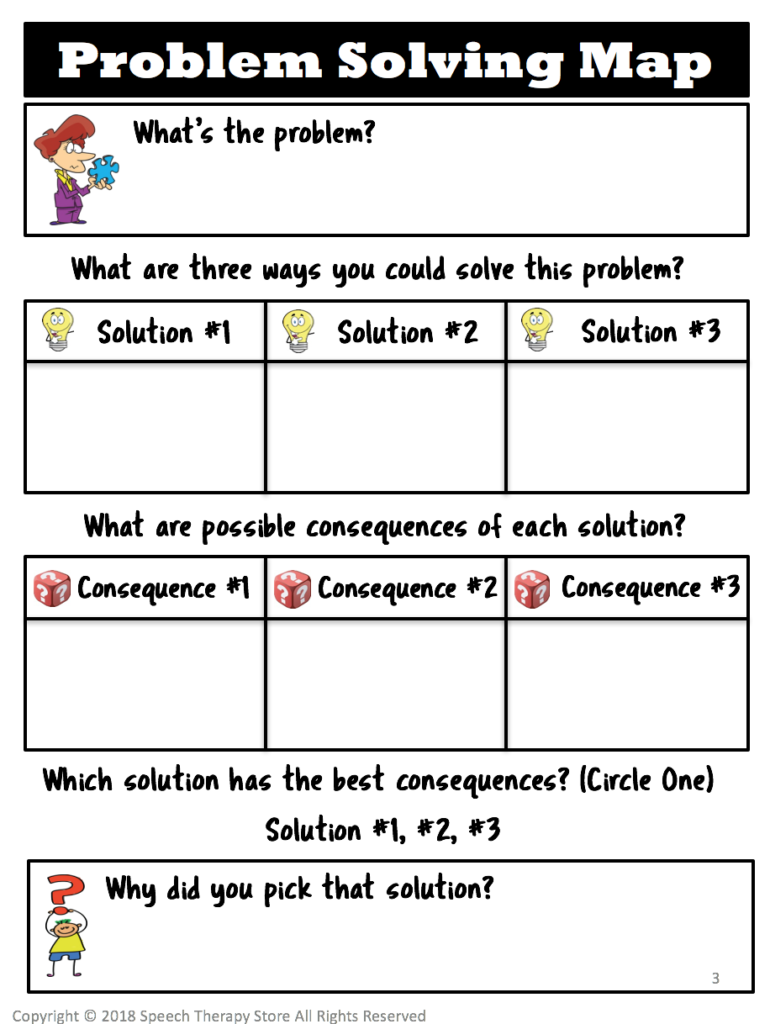
What we learnt about solving problems is don't freak out, if one thing doesn't work , try something else out. And work together as a team. #melthammathsweek #MELTHAMPUPILVOICE @problemsolveit pic.twitter.com/iVm1Im4Aue — yr6melthamce (@yr6melthamce) February 4, 2019
Problem Solving Review Form
After your students go through the social problem-solver have them use the social problem-solving review form.
- What happened. For instance, after your student tried their solution have them explain what happened next.
- Review the results. Also, have your student identify whether or not their solution got them the results they wanted.
- Use this solution again. Furthermore, have your student identify whether or not they would use this solution again in the future to solve the same or similar problem.
- What would you do differently? Finally, have your student explain what they would do differently if they didn’t get the results they wanted or if they wouldn’t use that solution again in the future.
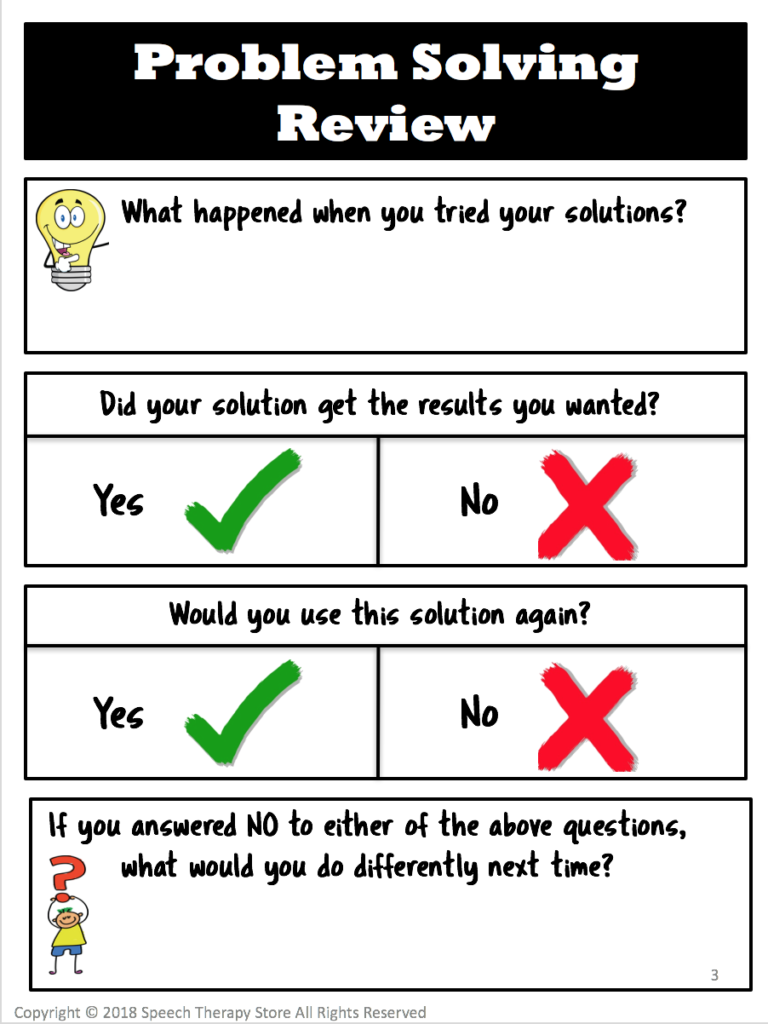
71+ Social Problem Scenarios + 6 Blank Scenarios
Use the 71 social problem-solving scenarios to have your students get great experience practicing how to solve a social problem. Also, included are 6 blank scenarios. Then laminate them so you can use them over and over again. Therefore, create social problems that the student experiences and needs help solving.
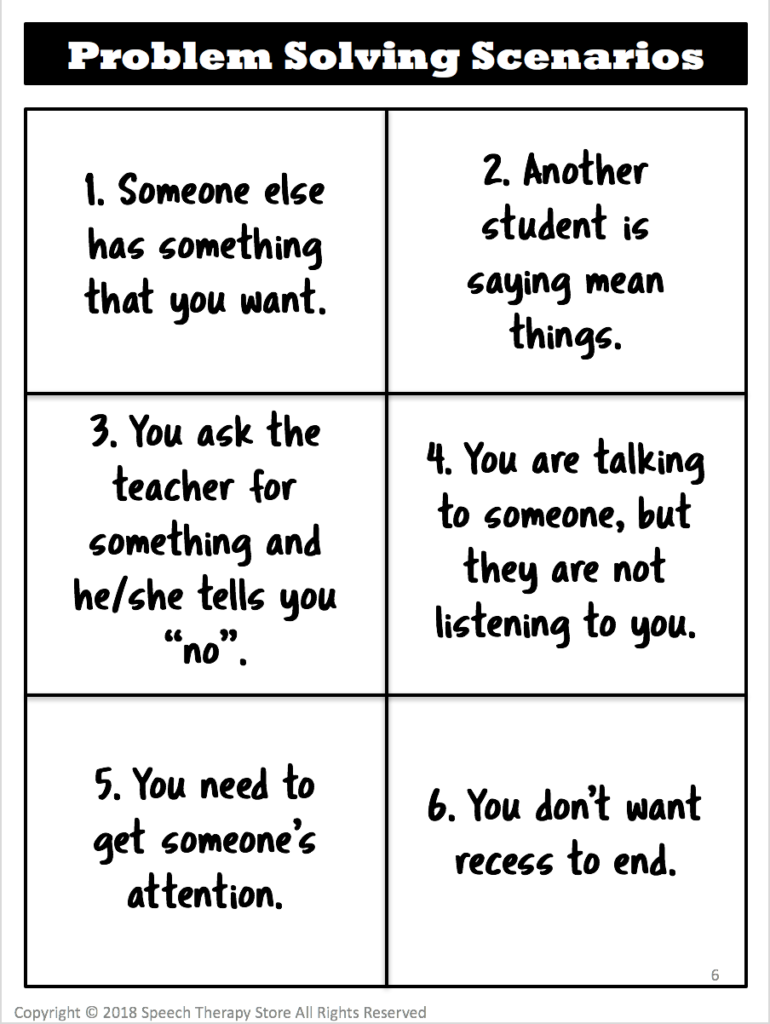
Wordless Video teaching Problem Solving
Watch this super cute wordless animation with your students and have them discuss the problem they see and how to best solve the problem.
Use this as a fun practice example to get your students started towards learning how to problem-solve.
Demonstrate Through Modeling
- Model and discuss empathy. First and foremost, children need to understand how another person might be feeling in a given situation in order to become a good social problem solver. The student needs to learn how to “stand in someone else’s shoes” for a little bit. One way you can work on this skill is during the reading time you can focus on how a particular character in the story might be feeling. Ask questions, such as, “How do they feel right now? How would you feel in that same situation? Why do you think they feel that way?”, etc.
- Model problem-solving skills as the teacher. When you are faced with a problem you can solve the problem by thinking aloud for the students to hear how you solve a problem. You can state the problem, then come up with possible solutions, then identify the possible consequences to each solution, then pick and explain why a solution is the best option. For example, you could say, “I was hoping to take the class outside for a stress walk around the track before the reading test, but the problem is that it is raining outside. I could still take you outside, but then you will get wet, or we could walk the halls, but then we’d have to be really quiet because there are other classes learning, or we could just skip the walk and take the reading test, but then you might not do as well on the test. I think based on all of those solutions the best solution will be to walk the hallway, but you guys will have to promise to be quiet so that we don’t disrupt other classes. Modeling the problem-solving process can be very helpful for the students to watch, observe, and later implement themselves.
Teach Communication
- Have students communicate how they are feeling . Teaching your students to share their emotions in a respectful way can improve their ability to problem-solve. Have students use an “I” sentence frame, such as, “I feel _____ (insert feeling word) when _____ (identify what made you feel that way).” For example, “I felt sad when Jackson broke my favorite pencil” or “I was mad when I wasn’t picked to be first in line. “This way students can communicate how they are feeling using honest and open communication. Teaching students to appropriately communicate their emotions can help solve some social problems from the beginning.
Encourage Independency
- Encourage your student to problem solve. If your student is struggling to problem solve independently encourage them to do so using open-ended questions, such as “How could you fix this problem?” “What would be a fair solution?” “What would happen if you used that solution?”, etc.
- Let the student try to problem solve independently. Give your students the space to try and solve their own problems using the guided strategies. Try not to come running to their rescue for every little problem. Some problems are small and a great opportunity for the student to learn and practice. If an adult does all of the problem solving for a student then what are they really learning. Give your students the time and space they need to practice solving small problems on their own. Of course, if it is a bigger or more serious problem then have an adult help guide the problem-solving process.
- Tell an adult. Remind your students that there are still some problems that are too big for them to solve on their own and that it is okay to get help from an adult to solve big problems. For example, if the student doesn’t feel safe, someone is being hurt physically or emotionally, or if they tried to solve a problem independently but it didn’t work and they need help. Let them know that it’s okay to tell an adult.
Teach How to Disagree and How to Make Up
- Discuss how to disagree respectfully. Remind your student that they won’t always agree with their teacher, friends, classmate, or parents and that’s okay. Even the people we like might have different opinions, interests, and likes than we do. However, even if we disagree with someone we should still treat them with respect. Treating someone with respect means to not call them names, ignore them, yell or hit them. It means that you do try to create solutions that both parties can agree with and to apologize when we hurt others’ feelings.
- Role-play how to make up. Practice in everyday life how to make up after a social problem .
Get your free social problem solver today!
I hope you and your students love this freebie!
Students are really having to stretch their brains today. It's @NSPCC #NumberDay and @problemsolveit are challenging Y9 and 10 to solve the escape room boxes. It's not as easy as it looks! The promise of a few sweet treats for the winners seems to be helping though! pic.twitter.com/AxRRJnJIv2 — CongletonHS (@CongletonHS) February 2, 2018
Have your students use task card scenarios to help them identify how they and others might feel in different social scenarios. Be sure to discuss the problem, identify possible solutions, identify the consequences of those possible solutions, and then based on those consequences pick the best solution. Make social problem-solving a game by telling the students that they are social detectives and that it is their job to use what they know about social rules to help them identify the possible and best solutions. Start practicing today with 71+ free social problem social task cards! Do your students need more practice? Be sure to check out my other freebie for 31 wordless animated videos to teach problem-solving and so much more.
Get More Problem Solving Time Saving Materials
Next, be sure to check out the following time-saving materials to continue to teach your students how to solve their social problems in addition to this freebie.
Weekly Social Pragmatics Homework
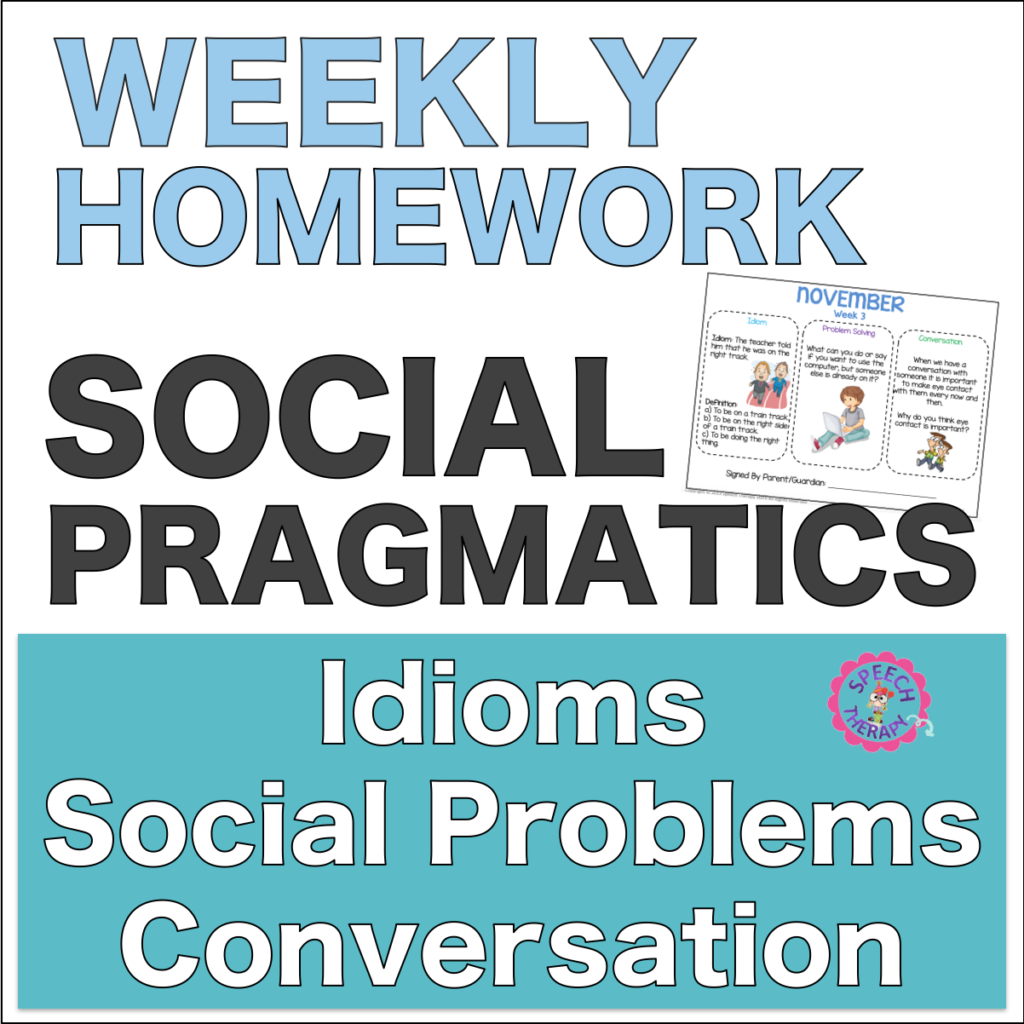
- Weekly problem-solving. Send home a weekly homework page that includes a problem-solving scenario plus an idiom and a conversational practice scenario.
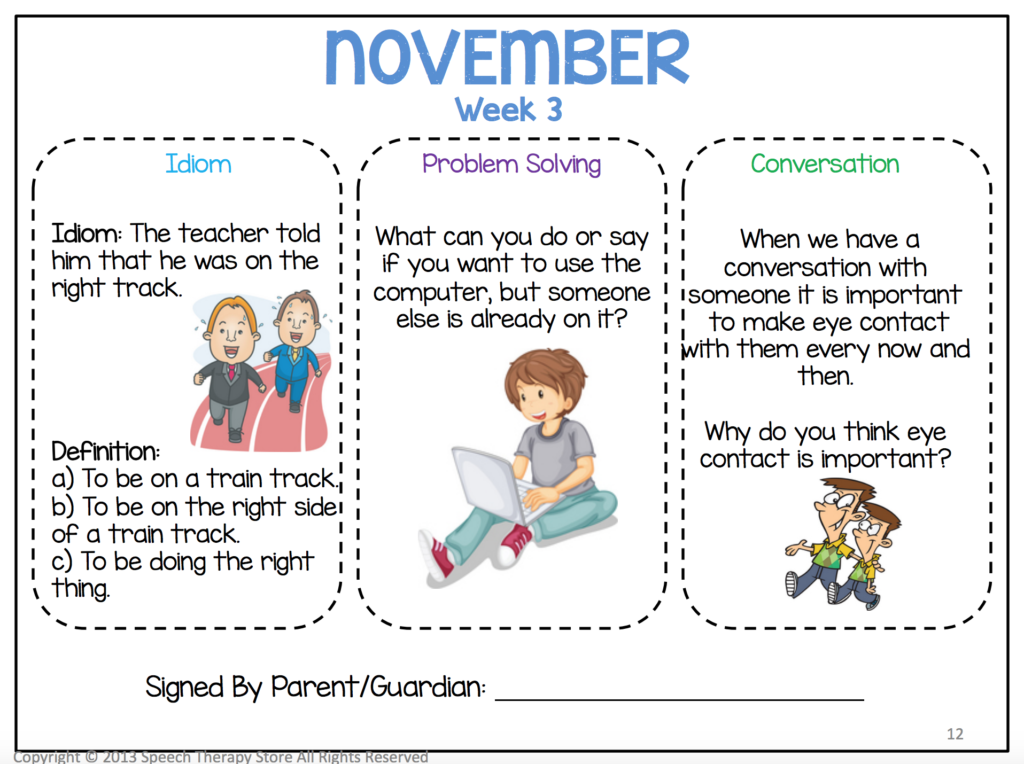
Restorative Justice Problem Solving Flip Book
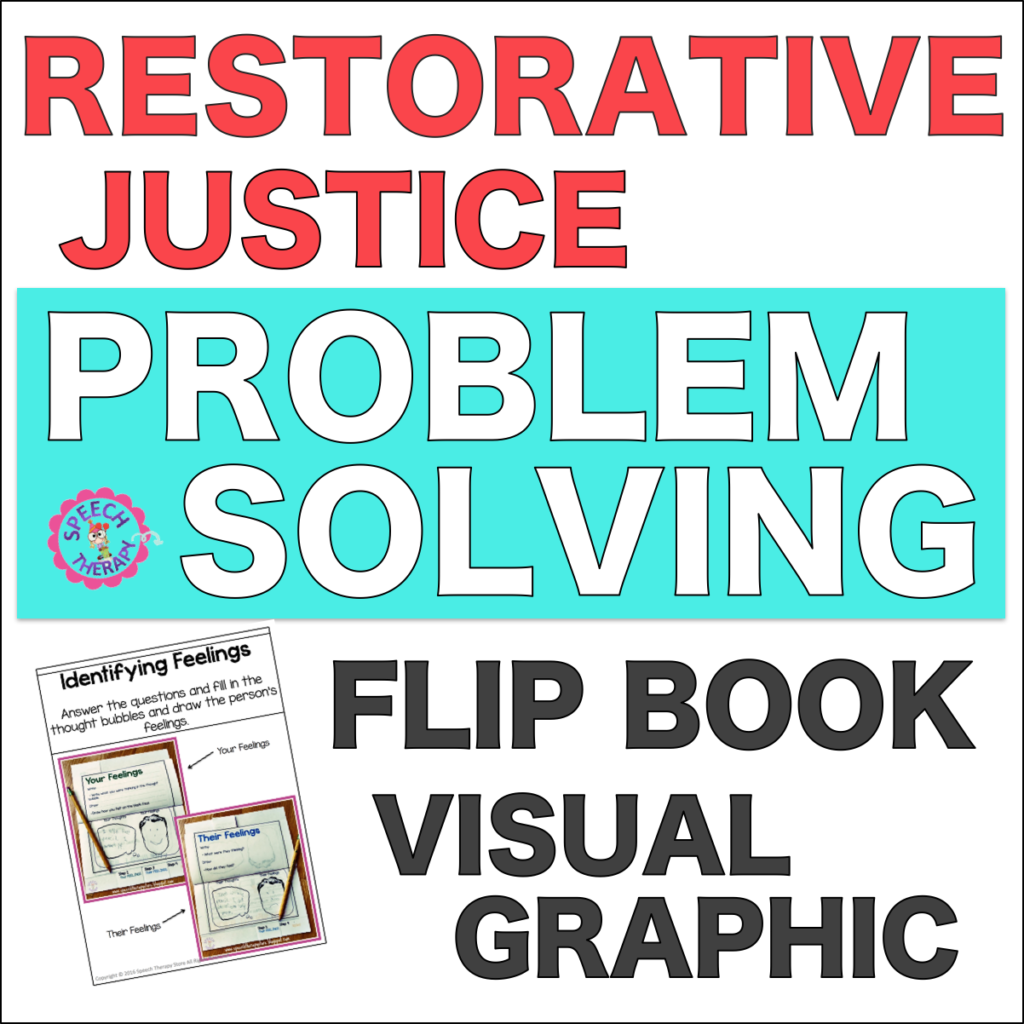
- Restorative justice graphic visual. Use this graphic visual to help your student restore a social relationship after a social problem.
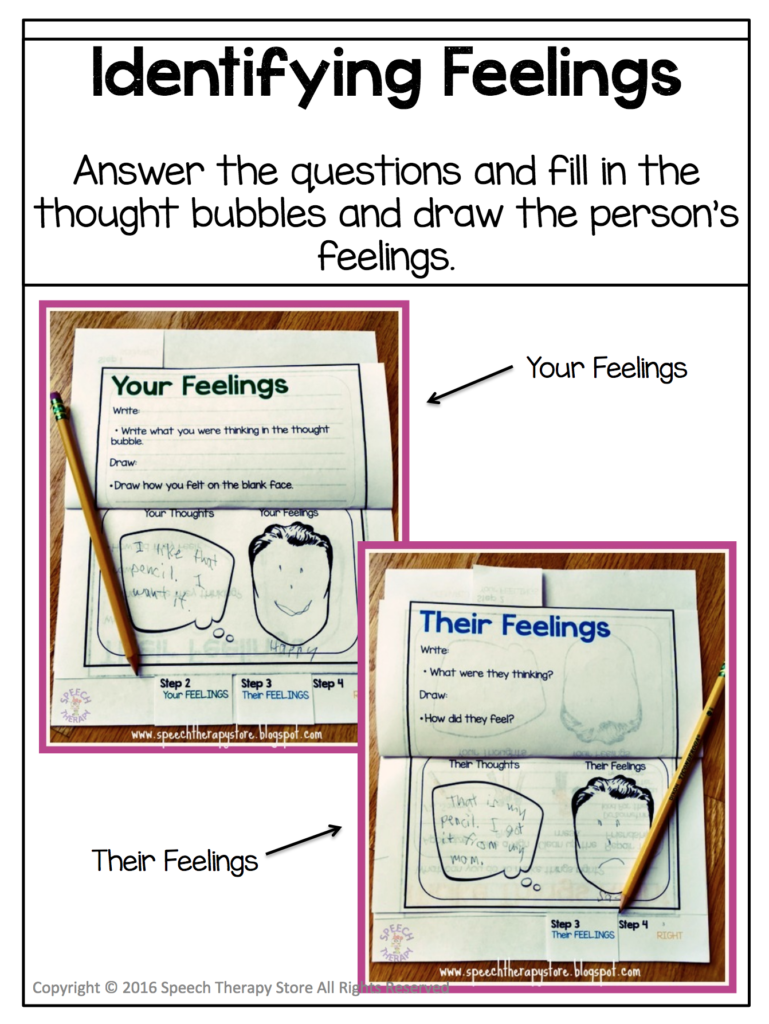
Self-Advocating Role-Play Scenarios
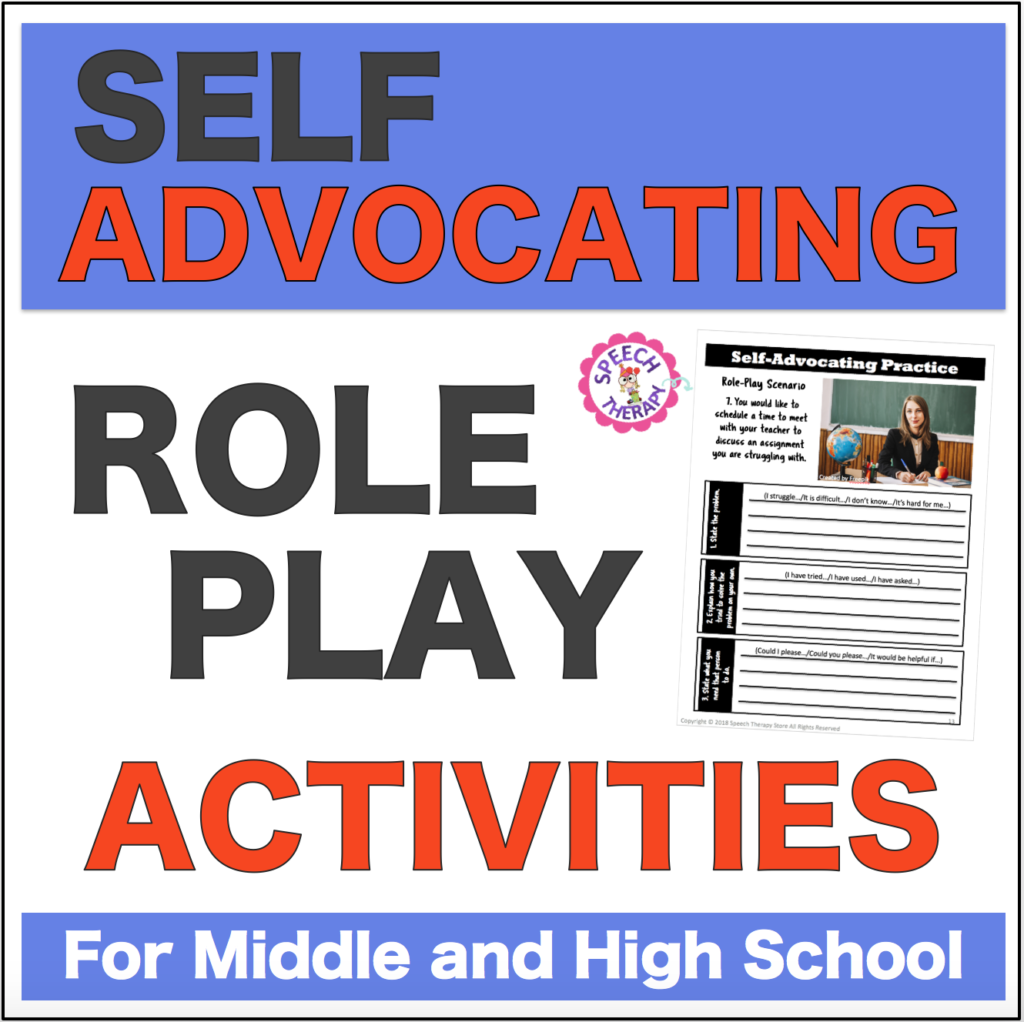
- Self-advocating in high school. Teach your high schoolers the process to self-advocate for what they need.
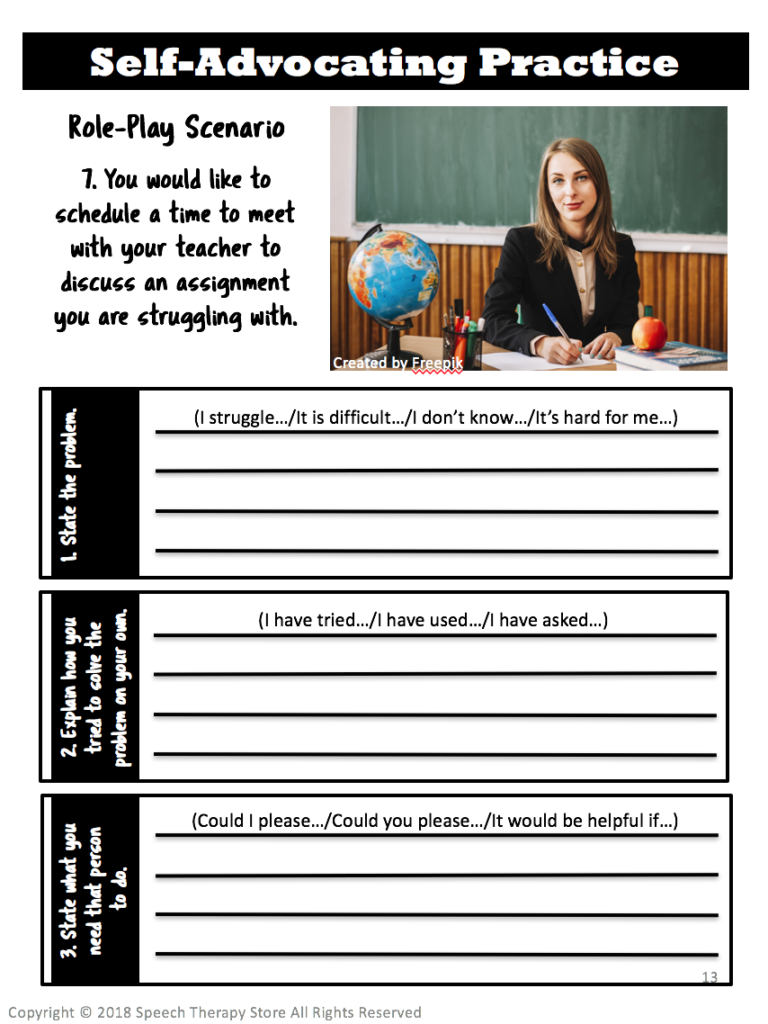
5th-12th Grade Life Skills Problem Solving
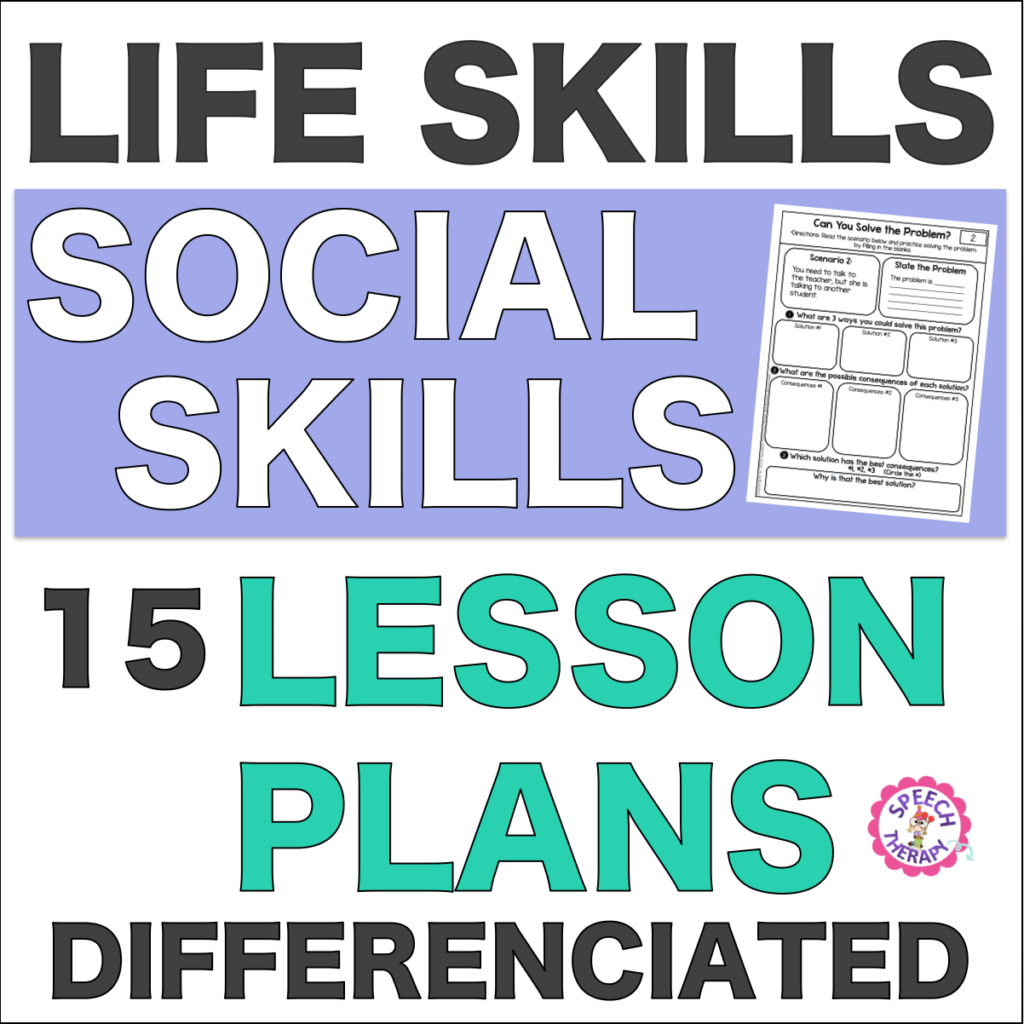
- Life skills problem-solving. In addition, this life skills differentiated bundle includes a problem-solving lesson plan.
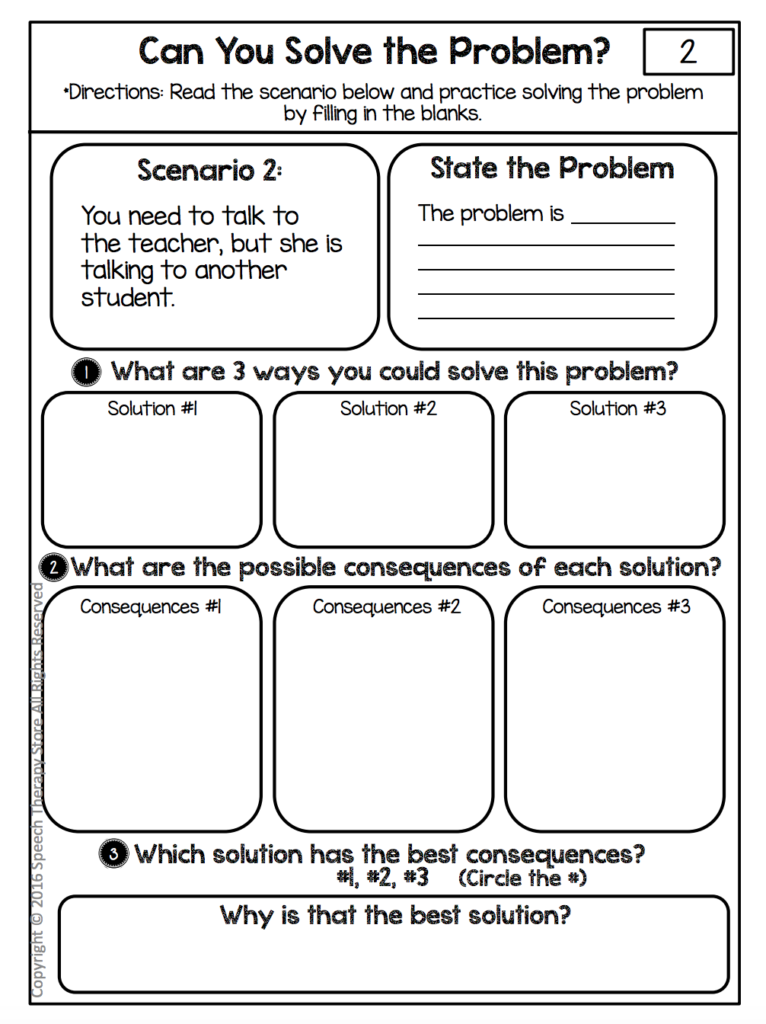
I recommend you read Problem Solving Wheel: Help Kids Solve Their Own Problems , 61+ Free Fillable SLP Planner Pages 2020-2021 , 430+ Free Multisyllabic Words List Activity Bundle , or 432+ Free IEP Goal Bank to Save You Time posts because they include freebies as well and who doesn’t want more freebies!
Got questions? Leave a comment. Let’s chat!
Monday 30th of January 2023
Hello! I have entered my name and email twice (yesterday & today) to receive to 71+ Free Social Problem-Solving Senarios, but I have not received anything yet. Not even an email back to mine in order to subcribe. Thanks for your help! Tracy
Melissa Berg
Tuesday 31st of January 2023
Hi Tracy, Thanks so much for reaching out! Sorry about that. We went ahead and sent you an email with the PDF attached. Wishing you all my best, Melissa
Problem Solving Skills
Tuesday 30th of August 2022
I truly love your site. Excellent colors, theme and writing. Thanks for sharing.
Laura Ricca
Monday 11th of April 2022
Tuesday 12th of April 2022
Hi Laura, I'm glad you found this resource helpful. Melissa
Modified Mental Health and Suicide Prevention - Speech Therapy Store
Monday 11th of May 2020
[…] 71+ FREE SOCIAL PROBLEM-SOLVING SCENARIOS […]
Problem Solving Wheel: Help Kids Solve Their Own Problems - Speech Therapy Store
Monday 4th of May 2020
[…] 71+ Free Social Problem Solving Task Cards Scenarios […]
Social Skills Training for Adults: 10 Best Activities + PDF

Struggles with social skills in adulthood can cause avoidance of social situations and interfere with building long-lasting relationships.
Providing social skills training to clients with anxiety, fear of public speaking, and similar issues could ensure more optimal functioning.
This article provides strategies and training options for the development of various social skills. Several resources to help target specific struggles related to the development of social skills in adults are also included, and the approaches can be tailored to improve social responses in specific domains.
Before you continue, we thought you might like to download our three Positive Psychology Exercises for free . These science-based exercises will explore fundamental aspects of positive psychology including strengths, values, and self-compassion, and will give you the tools to enhance the wellbeing of your clients, students, or employees.
This Article Contains:
Social skills training for adults explained, social skills coaching: 2 best activities, role-playing exercises: 4 scripts & examples, top 2 resources & worksheets, 4 insightful videos & podcasts, positivepsychology.com’s helpful tools, a take-home message.
Social skills training includes interventions and instructional methods that help an individual improve and understand social behavior. The goal of social skills training is to teach people about verbal and nonverbal behaviors that are involved in typical social interactions (“Social,” n.d.).
Social skills training is usually initiated when adults have not learned or been taught appropriate interpersonal skills or have trouble reading subtle cues in social interactions. These instances can also be associated with disorders that impede social development, such as autism.
Therapists who practice social skills training first focus on breaking down more complex social behaviors into smaller portions. Next, they develop an individualized program for patients, depending on what social skills they need to work on, and gradually introduce those skills to their patients, building up their confidence through gradual exposure.
For instance, a person who has trouble making eye contact because of anxiety in social situations might be given strategies to maintain eye contact by the therapist. Eye contact is the foundation for most social interaction, and interventions will often start with improving the individual’s ability to maintain eye contact.
During therapy, other challenging areas will be identified such as starting or maintaining a conversation or asking questions. Each session will focus on different activities that typically involve role-play and sometimes will take place in a group setting to simulate different social experiences.
Once confidence has been built up during therapy or social skills group settings, these social skills can be brought into daily life.
Useful assessments: Tests, checklists, questionnaires, & scales
Before engaging your clients in social skills interventions or any type of therapeutic intervention, it is important to determine if social skills therapy is a good approach to help them with their current situation.
The Is Social Skills Training Right for Me? checklist is a self-assessment opportunity for clients to determine if social skills therapy is appropriate for their specific situation or if another approach will be more beneficial.
However, self-assessment activities can sometimes be unreliable, as the individual might not fully understand the treatment models that are available to them. Additionally, if a client has issues with social skills, they may not be aware of their deficiencies in social situations.
In these situations, therapists should ask clients about the issues they are having and encourage them to engage in self-questioning during sessions.
9 Questions to ask your clients
Prior to starting social skills training or activities, the therapist and client should narrow down which areas need help. A therapist can do this by asking the client a series of questions, including:
- Where do you think you are struggling?
- Are there any social situations that make you feel anxious, upset, or nervous?
- Do you avoid any specific social situations or actions?
- Have you ever had anyone comment on your social behavior? What have they said?
- What do you think will help you improve the skills you are struggling with?
Clients can also ask themselves some questions to determine if the social skills therapy process is right for them.
These questions can include:
- What aspects of my life am I struggling with?
- Are there specific social situations or skills that I struggle with?
- Do I have trouble keeping or maintaining relationships with friends, family members, and coworkers?
- Am I avoiding specific social situations out of fear?
Getting clients to ask these questions will help determine if this process will benefit them. Having clients “buy in” to the process is important, to ensure that the approach is right for them and increase the likelihood that they will be engaged to complete activities with a reasonable degree of efficacy.

It is estimated that adults make eye contact 30–60% of the time in general conversation, increasing to 60–70% of the time when trying to form a more intimate relationship (Cognitive Development Learning Centre, 2019).
Giving people who are struggling socially the tools to make more eye contact is usually the first step in social skills training exercises.
The Strategies for Maintaining Eye Contact worksheet provides some practical strategies and tips to practice making eye contact.

Download 3 Free Positive Psychology Exercises (PDF)
Enhance wellbeing with these free, science-based exercises that draw on the latest insights from positive psychology.
Download 3 Free Positive Psychology Tools Pack (PDF)
By filling out your name and email address below.
Often, one of the most prominent struggles for people lacking social skills is starting a conversation, especially with people they are not familiar with.
Fleming (2013) details a helpful method for people who struggle with starting conversations. The ARE method can be used to initiate a conversation and gain an understanding of the person’s interests to facilitate a strong relationship.
- Anchor: Connect the conversation to your mutually shared reality (e.g., common interests) or the setting in which you encountered the individual.
- Reveal: Provide some personal context to help deepen the connection between you and the other person.
- Encourage: After giving them some context, provide the other person with positive reinforcement to encourage them to share.
This worksheet Starting a Conversation – The ARE Method guides participants through each step in the ARE process. It also provides examples of how the ARE method can be incorporated into a typical conversation and used as a workable strategy in social skills training activities.
A Guide to Small Talk: Conversation Starters and Replies provides an outline of conversation ideas to help start any conversation, no matter the setting.
After developing the ability to start a conversation, being able to project assertiveness and understand one’s limits is essential in ensuring clear communication.
These worksheets on Different Ways to Say ‘No’ Politely and Using ‘I’ Statements in Conversation facilitate assertive communication and give clients the confidence to set personal limits.

A lack of opportunity to learn coping strategies and difficulty with emotional regulation have been associated with anxiety and low problem-solving abilities (Anderson & Kazantzis, 2008).
An individual’s lack of ability to problem solve in social situations significantly affects their ability to come up with reasonable solutions to typical social problems, which in turn, causes them to avoid more difficult social situations.
Practicing social problem solving is a key component of social skills training. This worksheet on Social Problem Solving allows your clients to define the problems they are facing and rate the potential solutions from low to high efficacy.
Based on the rating, therapists can instruct clients to practice their social reasoning during sessions. Practicing these skills builds clients’ confidence and increases the likelihood that they will access these solutions under pressure.
Similarly, the Imagining Solutions to Social Problems worksheet implements a related process, but challenges participants to engage in a visualization activity. While engaging in visualization, participants have the opportunity to imagine what they would say or do, and reflect on what they have learned and why the solution they chose was best for that particular problem.
Supplementing modeling and practical activities with interactive audio-visual aids, such as podcasts and videos, is an essential practice in ensuring that patients seeking social skills training are getting multiple perspectives to develop their social intelligence.
Below, we have provided resources to help your clients with different social skills and situations.
An introvert’s guide to social freedom – Kaspars Breidaks
This TEDx talk focuses on providing guidelines for self-identified introverts. In this video, Breidaks frames introversion as an opportunity, rather than a weakness.
Based on his experiences moving from a small town to a big city and eventually starting improv comedy, he developed a workshop to help integrate principles of improvisation into social skills training.
His workshops focus on creating connections through eye contact and breaking through shyness by training the small talk muscle. Because of his experience, he recommends you say yes to yourself before saying yes to others. Breidaks theorizes that only by developing our awareness of our own true emotions and thoughts can we become more comfortable interacting with others.
This video is helpful if your patients need workable tips to improve their interactions with strangers and is an excellent complement to some of our worksheets on developing skills for small talk.
10 Ways to have a better conversation – Celeste Headlee
This TEDx talk is focused on tactics to have more effective conversations. In her TED talk, Headlee emphasizes the importance of honesty, clarity, and listening to others as well as yourself.
Headlee shares her ideas about how to talk and listen to others, specifically focusing on sustaining clear, coherent conversation and the importance of clear, direct communication.
She argues that technology has interfered with the development of interpersonal skills, stating that conversation is an art that is fundamentally underrated and should be emphasized more, especially among young children.
The main point Headlee tries to get across is to avoid multitasking and pontificating during conversation. Individuals who are struggling with active listening and keeping a conversation going would benefit from the tips she offers in this video, as she uses a lot of the same principles when interviewing her radio guests to ensure that she is getting the most out of their appearances.
She specifically emphasizes the importance of being continually present while talking and listening to someone, which is strongly emphasized in social skills training.
How Can I Say This – Beth Buelow
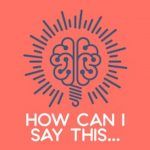
Each episode also provides techniques or approaches to help listeners become more confident when dealing with different social situations. The podcast also takes listener questions about dealing with social situations and issues.
If your clients are struggling with introducing themselves to new people, they may benefit from the episodes on talking to strangers and how to have difficult conversations.
Available on Spotify and Apple Podcasts .
Social Skills Coaching – Patrick King
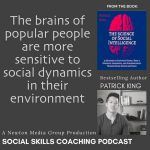
King focuses on using emotional intelligence and understanding human interaction to help break down emotional barriers, improve listeners’ confidence, and equip people with the tools they need for success.
Although King’s expertise is centered on romantic relationships, this podcast provides strategies to improve one’s emotional awareness and engage in better communication.
People engaging in social skills training would benefit from the episode on social sensitivity, which examines the social dynamics of the brain. It also explains why our brains are programmed to respond more to specific traits (e.g., warmth, dominance) and why people with those traits are often elevated to higher positions within the social hierarchy.
Available on Apple Podcasts .

17 Top-Rated Positive Psychology Exercises for Practitioners
Expand your arsenal and impact with these 17 Positive Psychology Exercises [PDF] , scientifically designed to promote human flourishing, meaning, and wellbeing.
Created by Experts. 100% Science-based.
There are several resources available on our website to complement the social skills training that you are providing to your clients.
Our Emotional Intelligence Masterclass© trains helping professionals in methodology that helps increase their client’s emotional intelligence.
The client workbook has several exercises that practitioners can give their clients to develop an awareness of their emotions and, subsequently, understand how those emotions might contribute to interactions with others.
Our Positive Psychology Toolkit© provides over 400 exercises and tools, and the Social Network Investment exercise, included in the Toolkit, focuses on reflecting on a client’s current social network. By further looking into the amount of time and investment devoted to the members of their social network, clients can further identify who is supportive of their endeavors and who negatively affects experiences.
With this knowledge, relationships can be analyzed before devoting even more time and investment that might not facilitate positive emotions.
People who struggle with initiating conversation might also have trouble talking about their emotions. Our exercise on Asking for Support , also in the Toolkit, can provide assistance to someone having trouble communicating their emotions.
It also provides strategies to practice asking for help when needed. This exercise also gives you the opportunity to identify any personal barriers that are impending your ability to seek help from others.
You might be interested in this sister article, Social Skills Training for Kids , which provides top resources for teachers. To enhance your knowledge, our Social Skills Books for Adults & Kids is a must-read selection of top books.
If you’re looking for more science-based ways to help others enhance their wellbeing, this signature collection contains 17 validated positive psychology tools for practitioners. Use them to help others flourish and thrive.
Improving social skills is an important skill to develop for anyone trying to facilitate professional and personal connections.
However, sometimes clients might not even realize they need targeted interventions to help with their social skills, and they might approach a therapist with other challenges around anxiety entering new situations.
For that reason, we hope this article provided valuable options for the development of social skills, with useful activities and social skills worksheets to be incorporated into your sessions.
We encourage you and your clients to explore these exercises together and engage in goal-setting tools to target areas that will benefit their daily lives, relationships, and communication.
We hope you enjoyed reading this article. Don’t forget to download our three Positive Psychology Exercises for free .
- Anderson, G., & Kazantzis, N. (2008). Social problem-solving skills for adults with mild intellectual disability: A multiple case study. Behaviour Change , 25 (2), 97–108.
- Cognitive Development Learning Centre. (2019). Training eye contact in communication . Retrieved May 4, 2021, from https://cognitive.com.sg/training-eye-contact-in-communication/
- Fleming, C. (2013). It’s the way you say it: Becoming articulate, well-spoken and clear (2nd ed.). Berrett-Koehler.
- Social skills training. (n.d.). In Encyclopedia of mental disorder. Retrieved May 4, 2021, from http://www.minddisorders.com/Py-Z/Social-skills-training.html
Share this article:
Article feedback
What our readers think.
Hello, I am trying to open the link to the ARE-method but am unable to.
Please try to access the worksheet here .
If you experience further issues with accessing the link, please let me know!
Warm regards, Julia | Community Manager
Sounds so good for my young adult. Do you know of any in person sessions, workshops, which would benefit him being in person.
I would like to know what the best book to get for my husband for him to learn social skills conversations. Thank You
check out our article “ 12 Must-Read Social Skills Books for Adults & Kids “.
Hope this helps!
Kind regards, Julia | Community Manager
Are there any online classes for people suffering with anxiety, Aspergers and a lack of social skills? This is a great article, but there are no therapists who teach social skills. These are skills that come from parents. Like me, when you have no parent or friends to teach you, what do you do? Please make an online course. I would pay to watch a course and even buy materials.
Thank you for your thoughtful comment and interest in an online course addressing anxiety, Aspergers, and social skills. I understand how challenging it can be to find the right resources, especially when traditional sources of support may not be readily available.
While we don’t currently offer an online course, we are happy to recommend a helpful resource that cater to individuals experiencing similar difficulties: Psychology Today has a great directory you can use to find therapists in your local area. Usually, the therapists provide a summary in their profile with their areas of expertise and types of issues they are used to working with.
I hope this helps.
Hello, I just found out about this website today and this is the exact type of service I need. I unfortunately cannot find any one like this that is near me or accept my insurance. And I need this fast since my quality of life is so bad, I have severe social anxiety, and never had friends or a relationship.
Hi there a lot of the links don’t work in this article? How can I access the resources?
Thanks for your question! We are working on updating all the broken links in our articles, as they can be outdated. Which specific resource are you looking for?
Maybe I can help 🙂
Kind regards, -Caroline | Community Manager
Living socially isolated, getting told I have autism ad the age of 33, I found out that I have a lot to learn about being social with people. Now knowing what my “ problem” is also gave me the drive to improve my people skills. Fearing I willing never fully understand feelings ( not even my own) all help is welcome. And this was a very helpful article. Living in a world with tips and tricks to look normal will never be easy. But you sure help me .. thank you..
AMAZING work.. .as always. Thank you !
Thank you Gabriella social skills have been a real issue for me for my whole life. There are so many helpful avenues to explore thanks this article.
Steven Cronson My brothers didn’t consider me an Aspie and made a pact to ignore me , block me I hadn’t even learned many social skills my brother a psychiatrist tried by giving me ptsd and gad a Divorce to try to get me to end my life. My wife proudly fought back and figured out how better to understand me. And I fought the awful had medicine Lexapro that I consider the devil in a pill that made me flat and losing my superpower focusing ability. I hope a producer latched on to my fascinating story of greed, over good, attack on my very life and a brother doctor that should never been one. My dad a psychiatrist made me a DDS to be respected and listened to but not even work and married off in a fake but better life. They accused me an Aspie blind to empathy. B
I’m sorry to read about your challenges with your family. It’s good that you have what sounds like a supportive ally in your wife. And indeed, medications don’t work for everyone — or it may be the case that a different medication may suit you better. Definitely raise these concerns with a trusted psychiatrist if you feel medication could help you.
As you note, it’s a harmful myth that those on the autism spectrum don’t feel empathy. And this myth unfairly stigmatises members of this community. I’m sorry to read about these accusations from your family.
On another note, if you’d like to work on your social skills, consider reaching out to support groups for those with Aspergers in your area, or seeking the support of a therapist with expertise in this area. Psychology Today has a great directory you can use to find therapists in your local area. Usually, the therapists provide a summary in their profile with their areas of expertise and types of issues they are used to working with.
I hope this helps, and I wish you all the best.
– Nicole | Community manager
Let us know your thoughts Cancel reply
Your email address will not be published.
Save my name, email, and website in this browser for the next time I comment.
Related articles

Learning Disabilities: 9 Types, Symptoms & Tests
Albert Einstein, Winston Churchill, Sylvester Stalone, Thomas Edison, and Keanu Reeves. What do all of these individuals have in common? They have all been diagnosed [...]

Best Courses for Counselors to Grow & Develop Your Skills
Counselors come from a great variety of backgrounds often with roots in a range of helping professions. Every counselor needs to keep abreast of the [...]
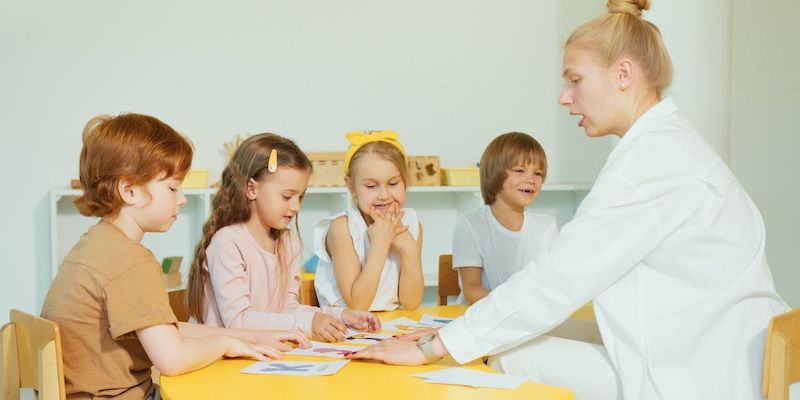
How to Apply Social-Emotional Learning Activities in Education
As a teacher, your training may have focused more on academia than teaching social skills. Now in the classroom, you face the challenge of implementing [...]
Read other articles by their category
- Body & Brain (48)
- Coaching & Application (57)
- Compassion (26)
- Counseling (51)
- Emotional Intelligence (24)
- Gratitude (18)
- Grief & Bereavement (21)
- Happiness & SWB (40)
- Meaning & Values (26)
- Meditation (20)
- Mindfulness (45)
- Motivation & Goals (45)
- Optimism & Mindset (34)
- Positive CBT (28)
- Positive Communication (20)
- Positive Education (47)
- Positive Emotions (32)
- Positive Leadership (17)
- Positive Parenting (3)
- Positive Psychology (33)
- Positive Workplace (37)
- Productivity (16)
- Relationships (46)
- Resilience & Coping (36)
- Self Awareness (21)
- Self Esteem (37)
- Strengths & Virtues (31)
- Stress & Burnout Prevention (34)
- Theory & Books (46)
- Therapy Exercises (37)
- Types of Therapy (64)
3 Positive Psychology Tools (PDF)
A Blog About Parenting: Coping Skills, Behavior Management and Special Needs
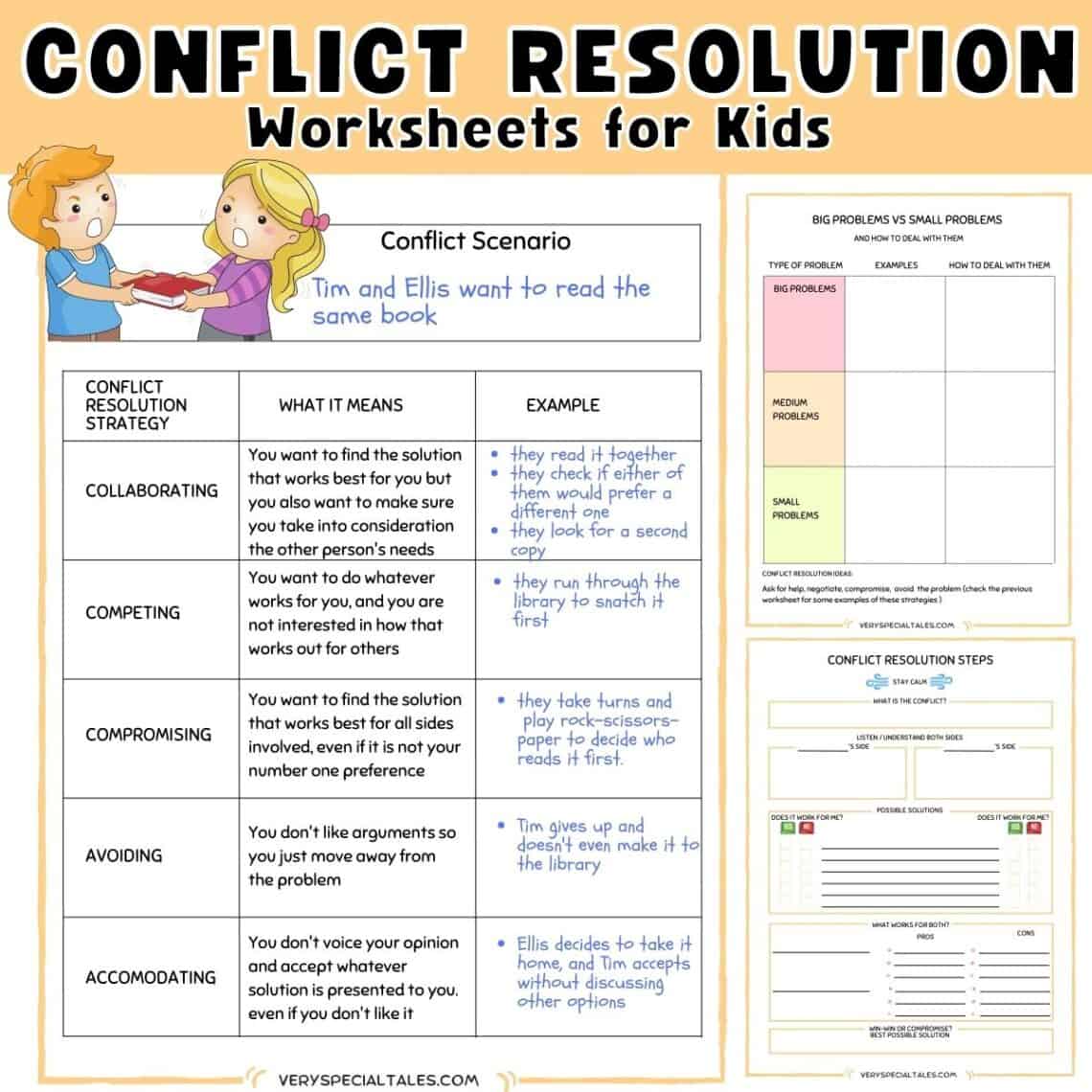
20 Fun Conflict Resolution Activities for Kids (Printable PDF): Worksheets, Games and Activities

Conflict resolution activities for kids: In this post, we will explore different strategies to help kids deal with conflict. We will also list fun and easy activities that you can add to your conflict resolution lessons or use at home with your kids. And, at the end of the post, you will be able to download some conflict-resolution worksheets.
We all go through conflict and arguments in our everyday life. Learning healthy ways to handle conflict is an invaluable social skill to develop in our kids
Luckily, there are some really creative ways to help teach kids all about conflict resolution.
(Disclosure: We are a participant in the Amazon Services LLC Associates Program, an affiliate advertising program designed to provide a means for us to earn fees by linking to Amazon.com and affiliated sites. As an Amazon Associate, I earn from qualifying purchases. There may also be other affiliate links in this post. You can also read our Disclosure & Disclaimer policy here )
What is Conflict Resolution
Conflict resolution is the process used to manage or settle our differences using different conflict resolution strategies.
Ideally, we will try to achieve positive outcomes that will satisfy or be beneficial for all parties sides.
Conflict-resolution is similar to problem-solving. In conflicts though, we may see ourselves inundated with strong feelings (anger, frustration, sense of injustice).
Managing those feelings will be an important first step before we attempt an effective problem-solving strategy .
Conflict Resolution Techniques
There are different classifications that map conflict resolution styles and techniques.
We will briefly review a couple of them because they are a good foundation for understanding conflict resolution’s intricacies.
We’ll start with one of the most popular ones:
The Five Conflict-Handling Modes
Thomas (1976) classifies interpersonal conflict-handling behavior in a model with two basic dimensions:
- Assertiveness (attempting to satisfy our own concerns)
- Cooperativeness (trying to satisfy other people’s concerns too)
This two-dimensional model results in five conflict-handling modes:
- Collaborating (assertive & cooperative)
- Competing (assertive & non-cooperative)
- Compromising (an intermediate level of both assertiveness and cooperativeness)
- Avoiding (unassertive & uncooperative)
- Accommodating (unassertive & cooperative)
In plain words:
- Collaborating: kids look for ways to solve the conflict that bring the best outcome for both parties (the famous win-win situation)
- Competing: we only care about our own goals and are not trying to accommodate the needs of others
- Compromising: we try to look for a solution that may not be our preferred one but is acceptable for all parties involved
- Avoiding: one of the parties may not be as invested in the problem, or prefers to avoid confrontation, and decides to withdraw from the argument
- Accommodating: a kid may choose to neglect their own preferences to satisfy the preferences of the other person
Related Reading: How to Teach Assertiveness to Kids
Other Conflict Resolution Strategies
If we take into consideration the parties involved in a conflict, we could also list the following strategies:
- Negotiation
- Arbitration
- Litigation (which obviously does not apply to our topic here)
What would these look like for our kids: We will focus on how this translates to conflict resolution for kids:
- Negotiation: kids brainstorm satisfactory solutions to their problems and reach a win-win solution. If they can’t find a good solution, they may need to look for a compromise
- Mediation: when kids can’t resolve the conflict on their own, they may need a neutral third party (teacher, parent, caregiver) that helps them come up with a solution rather than imposing it.
- Arbitration: we would arrive here when kids can’t agree, so the neutral third party will need to put the argument to rest deciding on the best solution after listening to both sides.
Why is Conflict Resolution Important for Kids
Children need essential skills like navigating difficult situations to get a peaceful solution.
Benefits to developing conflict resolution skills:
- develop communication skills
- strengthen friendships
- learn goal setting
- solve conflicts in a peaceful way
Conflict resolution requires the development of a number of social skills like:
- problem-solving
- managing negative feelings and big emotions
- collaboration
- flexible thinking
- compromising
- effective communication
- acceptance of diversity
It is when someone in a conflict situation takes the time to consider the emotions of everyone else involved. If kids are able to develop this skill through effective communication and strong emotional intelligence , it will help them solve problems in a more effective way throughout their life.
There are many ways to help kids grow their ability to resolve conflict that can be fun and informative. Keep reading to learn some of the most popular conflict resolution activities…
Healthy Ways to Deal with Conflict
There are healthy and unhealthy ways to deal with conflict.
These are some examples of unhealthy ways kids can use to deal with conflict:
- Not caring about the other person’s view
- Holding a grudge
- Big emotional reactions like getting very angry, shouting, calling names, threatening
- Not being able to compromise
- Giving up on something that is important to you
Examples of healthy ways to approach conflict may include:
- Caring about the other person’s view
- Using your calm and assertive voice to express your feelings
- Not taking things too personally
- Learning to forgive
- Being able to compromise
- Working to find solutions that can accommodate both sides (negotiation)
20 Conflict Resolution Activities for Kids
Wondering how to teach conflict resolution to kids?
Discuss conflict at home or school. Choose topics from the news, a conflict at work, something that happened at school, or even made-up conflict scenarios.
Beyond having conversations, there are some great activities that kids can do individually or as a group to help foster this vital skill.
Here are 20 of the best conflict resolution activities for kids that can help build the valuable lifelong skill of resolving conflict peacefully.
The activities below fall under the following categories:
Conflict Resolution Worksheets
- Conflict Resolution Activities
- Conflict Resolution Games
Some of these activities will be a great addition to a lesson plan.
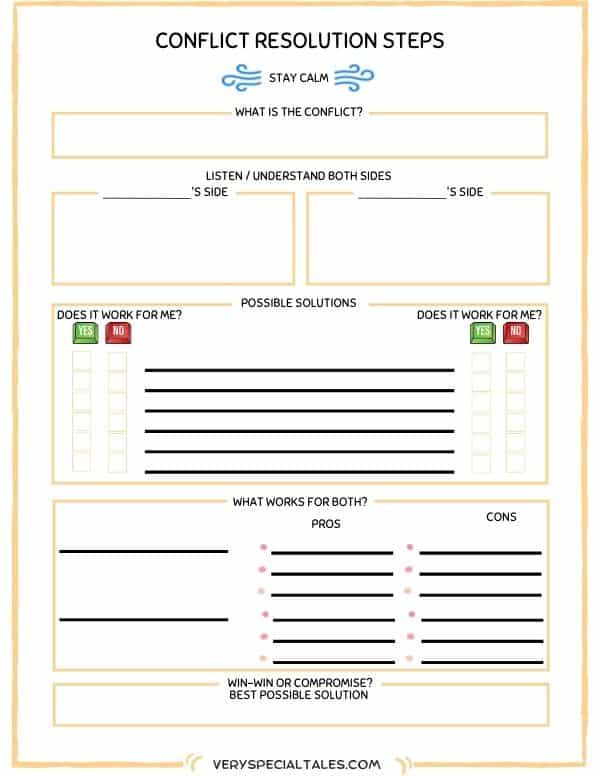
Conflict resolution is, in essence, a social problem-solving situation.
In this worksheet, we will follow the steps for problem-solving, with an important addition (calm-down):
- Calm down so that you can deal with the conflict
- What is the problem/conflict
- Listen to the other side
- Think about possible solutions
- Check pros and cons
- Decide what solution works best for all (win-win if possible)
You can download this conflict resolution worksheet at the end of the post.
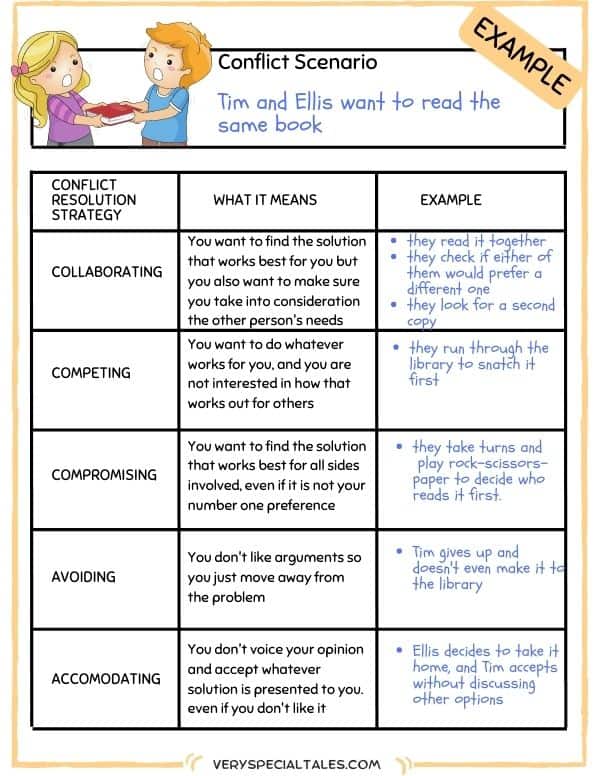
This conflict resolution worksheet will work on the different conflict-handling modes:
- competition
- accommodating.
Identify a conflict scenario, and ask your students to write examples for each conflict resolution strategy.
Your downloadable worksheet includes an example of a conflict scenario (Tim & Ellis want the same book) and a blank worksheet (for your own examples).
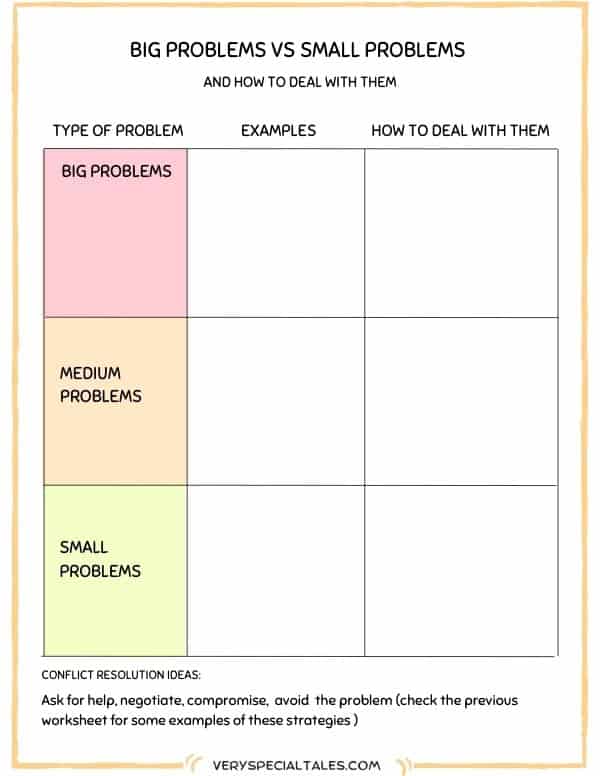
In this activity, we will try to connect the size of our problem, with different ways of dealing with conflict.
Conflict resolution strategies include negotiation, mediation, and arbitration.
Depending on the type of conflict kids are dealing with, they may be able to deal with that conflict on their own (little problem), or they may need to involve an adult in the situation (mediation/arbitration for big problems)
Fun Conflict Resolution Activities for the Classroom / Groups
4. Conflict Resolution Roll-Play
On a popsicle stick, write out common conflicts that children face. Once you have around 20, have two students stand in front of the class and act out the situation that the popsicle stick says.
Once they act it out, have the class discuss different solutions to how the problem could be solved either as a group or in small groups.
Variation: if the different scenarios you are choosing are a bit complicated for the popsicle stick, you can write them down on pieces of paper and put them in a jar or a box.
5. Write it Out
Using the popsicle sticks from the last activity, have the students all draw a different scenario and then write how they think the conflict should be resolved.
In small groups of three or four, have the students share what their popsicle sticks had written on them, and how they would solve the problem.
6. Negotiation Scenario Activity
This is a great conflict resolution activity to help kids understand that there are always different points of view.
Create a conflict scenario where neither of the two parties has all the information about the other party. If both parties negotiate, they can reach a solution that will be good for both of them, but they need to listen to each other to be able to come up with the solution.
An example:
- (Part 1) Two students need the same book for a school essay (for example, “How dinosaurs became extinct”) They only have one day to write their piece, there is only one copy in the school library and neither of them wants to give it up. Let the students discuss how to deal with this conflict
- (Part 2) Provide each student with some additional information: Student A (Annie) would prefer to write about inspiring women role models, but she couldn’t find anything on that topic. Student B (Amanda) loves dinosaurs and is really keen on writing on this topic. On her birthday, she was gifted the Good Night Stories for Rebel Girls book. That could be an excellent choice to inspire Annie’s essay. Ask the students to go back to the negotiations, and suggest they explore why the other party wishes to write about the chosen topic. Are the solutions different this time
7. Create a Short Story
Ask your students to develop a story that recreates a conflict and how it gets solved.
8. Exploring Feelings
Read aloud to your students a scenario that could bring out different emotions.
It could be something as simple as:
- Scenario 1: parent is late for school pick up, and they are going to miss the football match
- Scenario 2: a classmate declines your invitation for a playdate.
Have everyone write down how that would make them feel on a 5×8 notecard, then hold it up.
Ask them to share what they have written and learn how the same scenario can bring different feelings in each person:
- a kid may assume their parents got stuck in traffic, while some other may feel they don’t care if they miss sports
- a student may assume that their friend is very busy, while another may feel their friend doesn’t care and may look for other friendships
Our feelings play an important role in how we deal with a situation.
9. Listening Activity
An important part of conflict resolution is listening to the other side.
Following up on the previous activity, let’s now add new pieces of information
- Scenario 1: there was a big traffic jam, and the parent’s phone was out of battery
- Scenario 2: your friend has swimming lessons on the day you suggested (and since you proposed the same day each time, they kept declining)
After listening to the other side, how would you approach this argument/conflict?
Related Reading: Listening Games and Activities for Kids
10. Conflict Resolution Writing Prompt
Have your students write out the sentence “I would get into a fight with someone if they tried to take away_________.”
Then have them write down why that item is so important to them that they would want to get into a fight.
The idea behind this is that they realize that most conflicts aren’t worth it.
11. Healthy vs. Unhealthy Conflict Resolution
Have your kids write down ways to solve a conflict scenario. They don’t need to be the best solutions. , we are just brainstorming anything that crosses their minds.
Once they have come up with all these solutions, ask them to classify them as healthy vs. unhealthy.
Tip: Go back to our “healthy ways to deal with conflict” section for some inspiration or examples
12. Conflict Resolution Books for Kids
- Speak Up and Get Along is a chapter book for kids age 8 to 12 and is an excellent resource.
This social skills book shares twenty-one strategies children can use to end arguments and fights, make friends and stop bullying. It provides age-appropriate examples and lines they can practice and role-play.
We can’t deal with a conflict if we are feeling overwhelmed with intense feelings. The next suggestions focus on calming down so that we are ready to deal with conflict appropriately
13. Learning to Deal with your Anger
There are many anger management activities that can help kids deal with their emotions.
Check out the Cool Kid Journal (Anger activities for kids) to explore healthy ways of dealing with anger (it includes 70 gorgeous calm down cards).
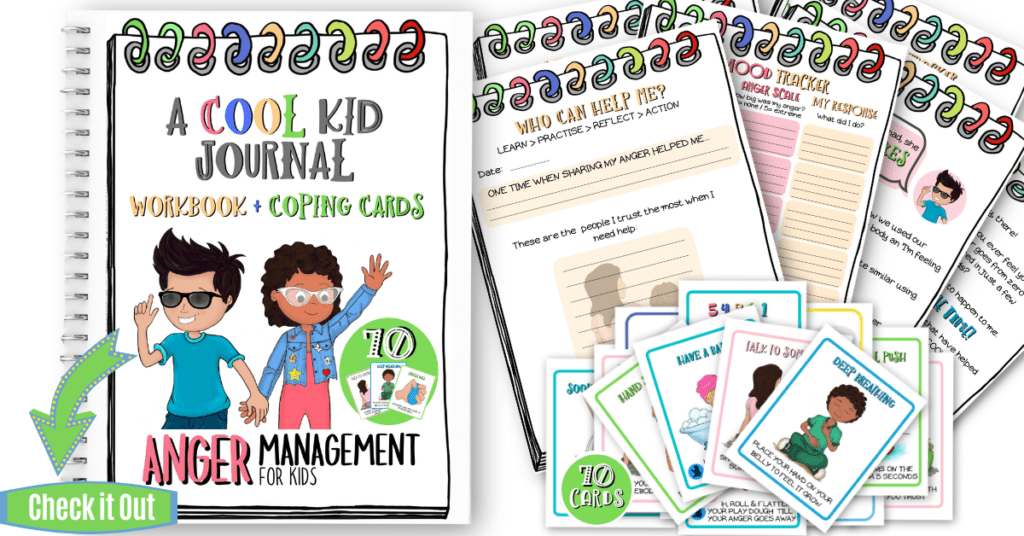
14. Practice Taking Deep Breaths
A simple activity for kids of all ages is to practice taking deep breaths when they are upset.
This will help them calm down so that you can discuss a way to deal with the problem.
Recommended Reading: Fun Breathing Exercises for Kids
15. Model in your own life
Whether you share a story of a time when you needed to resolve conflict or show it in a real-life scenario, adults are the best teachers in explaining conflict resolution.
16. Friendship Activities
If a child in your life seems to be having a hard time staying out of conflict, it might be time to discuss what having a good friend should look like.
While conflict is a part of life, it doesn’t need to be a daily occurrence throughout elementary school and middle school. Instead, encourage your child to work towards healthy friendships.
Recommended reading: Friendship Activities for Kids (includes a worksheet that explores unhealthy bad signs in a friendship /warning signs /healthy/good signs)
17. Conflict Resolution Journal
Have your kids sit down and journal a personal conflict. Then, have them list out different ways that they can resolve that conflict.
Conflict Resolution Games
A great way to learn new skills is playing.
Let’s take a look at some conflict resolution games:
18. 6 Conflict & Resolution Games This game is not just one game, but several great conflict resolution games.
Let’s check a couple of examples
- Spinning the wheel game presents social scenarios, and you need to provide possible solutions. After you spin the wheel, you need to come up with a solution in one of the following categories: me, other, or all (depending on who benefits from the solution). This game explores competition and compromising
- “Are you a bully” is a game inspired by the Snake & Ladders setup that presents bullying/mean situations vs. kind social responses
-> Check out this game
19. Social Skills Group Activity
In this game , players need to discuss socially challenging situations. They include boards on six different topics: morals, manners, empathy, friendship, and two boards on emotions (showing and managing them).
The manners game is actually a conflict resolutions game, and the players have to answer questions like:
- you see a friend stealing something from a shop
- you see a friend cheating during a test
- you are served a meal you don’t like at a friend’s house
These types of questions present a perfect opportunity to brainstorm solutions to a conflict and to discuss the size of the problem and whether it is big enough to engage the help of an adult.
And let’s finish our list with a fun video.
20. How to Explain Conflict to Kids (Video)
In this Sesame Street video, our beloved Robin Williams teaches kids the meaning of conflict.
Other Social Skills Resources
These are some helpful resources to help kids build social skills:
- 25 Problem-Solving Activities for Kids
- I-Statement Worksheets
- Self-Introduction for Kids (Worksheets)
- Social Skills Activities for Kids
- Conversation Starters for Kids
- Listening Games and Activities
- Apology Worksheets and Activities
- Friendship Activities for Kids
- Turn-Taking Activities for Kids
- Fun Emotional Intelligence Activities for Kids
Conflict Resolution Activities (Worksheets / PDF Download)

it s very useful.
Very well made. Thanks
Leave a Reply Cancel reply
Your email address will not be published. Required fields are marked *
The Pathway 2 Success
Solutions for Social Emotional Learning & Executive Functioning
Teaching Social Problem-Solving with a Free Activity
February 3, 2018 by pathway2success 5 Comments
- Facebook 77

Kids and young adults need to be able to problem-solve on their own. Every day, kids are faced with a huge number of social situations and challenges. Whether they are just having a conversation with a peer, working with a group on a project, or dealing with an ethical dilemma, kids must use their social skills and knowledge to help them navigate tough situations. Ideally, we want kids to make positive choices entirely on their own. Of course, we know that kids don’t start off that way. They need to learn how to collaborate, communicate, cooperate, negotiate, and self-advocate.
Social problem solving skills are critical skills to learn for kids with autism, ADHD, and other social challenges. Of course, all kids and young adults benefit from these skills. They fit perfectly into a morning meeting discussion or advisory periods for older kids. Not only are these skills that kids will use in your classroom, but throughout their entire lives. They are well worth the time to teach!
Here are 5 steps to help kids learn social problem solving skills:
1. Teach kids to communicate their feelings. Being able to openly and respectfully share emotions is a foundational element to social problem solving. Teaching I statements can be a simple and effective way to kids to share their feelings. With an I statement, kids will state, “I feel ______ when _____.” The whole idea is that this type of statement allows someone to share how their feeling without targeting or blaming anyone else. Helping kids to communicate their emotions can solve many social problems from the start and encourages positive self-expression.
2. Discuss and model empathy. In order for kids to really grasp problem-solving, they need to learn how to think about the feelings of others. Literature is a great way teach and practice empathy! Talk about the feelings of characters within texts you are reading, really highlighting how they might feel in situations and why. Ask questions like, “How might they feel? Why do you think they felt that way? Would you feel the same in that situation? Why or why not?” to help teach emerging empathy skills. You can also make up your own situations and have kids share responses, too.

3. Model problem-solving skills. When a problem arises, discuss it and share some solutions how you might go forward to fix it. For example, you might say, “I was really expecting to give the class this math assignment today but I just found out we have an assembly. This wasn’t in my plans. I could try to give part of it now or I could hold off and give the assignment tomorrow instead. It’s not perfect, but I think I’ll wait that way we can go at the pace we need to.” This type of think-aloud models the type of thinking that kids should be using when a problem comes up.
4. Use social scenarios to practice. Give a scenario and have kids consider how that person might feel in that situation. Discuss options for what that person might do to solve the problem, possible consequences for their choices, and what the best decision might be. Kids can consider themselves social detectives by using the clues and what they know about social rules to help them figure out the solution. These are especially fun in small groups to have kids discuss collaboratively. Use these free social problem solving cards to start your kids off practicing!

5. Allow kids to figure it out. Don’t come to the rescue when a child or young adult has a problem. As long as it’s not a serious issue, give them time to think about it and use their problem-solving skills on their own. Of course, it’s much easier to have an adult solve all the problems but that doesn’t teach the necessary skills. When a child comes to you asking for your help with a social problem, encourage them to think about it for five minutes before coming back to you. By that point, they might have already figured out possible solutions and ideas and might not even need you anymore.
If you are interested in helping your kids learn social problem solving skills right away, consider trying out these Social Problem Solving Task Cards . They highlight real social scenarios and situations that kids can discuss. The scenarios include a variety of locations, such as in classrooms, with family, with friends, at recess, and at lunch. This set is targeted for elementary-age learners.

Of course, older kids need social problem solving skills, too! If you work with older kids, you will love these Social Problem Solving Task Cards for Middle and High School Kids. These situations target age-appropriate issues that come up in classes, with friends, with family, in the hallway, in the cafeteria, and with online and texting.

Remember that teaching social problem skills does take a little bit of planning and effort, but it will be well worth the time! Kids will use these skills to help them make social decisions in their everyday lives now and in the future!

Share this:

February 22, 2018 at 12:03 am
Thank you for sharing>
March 3, 2018 at 8:59 am
Good thought ful
March 20, 2018 at 9:24 pm
They are not free
March 21, 2018 at 8:58 am
They are! Here is the link (it’s listed under number 4): https://www.teacherspayteachers.com/Product/Free-Social-Problem-Solving-Task-Cards-2026178 I also have a paid version with a bunch more cards (for both elementary and older kids), but that will give you the freebie. Enjoy!
July 15, 2018 at 3:41 am
Awesome way to teach the skill of social problem solving.
Leave a Reply Cancel reply
Your email address will not be published. Required fields are marked *
Save my name, email, and website in this browser for the next time I comment.
Find It Fast
- Privacy Policy
- Join Pathway 2 Success
- Social Emotional Learning Toolkit
pathway2success1
⭐ Kristina 💖 SEL & Executive Functioning 💻 Blogger at www.thepathway2success.com 👩🏫 Special Educator turned Curriculum Specialist Links here 👇

Social Problem Solving Situations Printable PDF Worksheets

Also included in
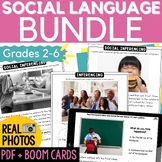
Description
Social inferencing can be so difficulty for some students to master. This time saving, multi-level printable PDF features a variety of cards to improve students' social inferencing skills . Worksheets feature 30 different scenarios with REAL PICTURES , both with and without answer choices in COLOR & in BLACK/WHITE. Each scenario includes 4-7 questions per scenario.
These worksheets are perfect for speech therapy sessions, classroom use, social skills groups, or home practice and is sure to have your students practicing and mastering this skill in no time at all!
**Please note that this is the PRINTABLE version of my best-selling Social Inferences | Problem Solving BOOM CARDS™ deck. If you already own that deck, you may not want to purchase this deck as it contains the same scenarios (just a different format).**
Want both the printable worksheets and the Boom Cards? You can find that bundle HERE !
This fun and engaging resource includes:
- A PDF with both color and b/w worksheets
LEVEL 1: There are 10 different, relatable scenarios. Each slide includes the short scenario, and 1 social inferencing and/or social problem-solving question per slide (a total of 5 questions per scenario) and answer choices.
Either have students read the scenarios & answer the questions or read the scenarios, questions, and answer choices with your students. Work through the questions and scenarios as needed. Students will mostly likely, initially, need more support.
LEVEL 2: There are 20 different, relatable scenarios with 7 different open-ended questions. Level 2 provides a chance for your students to work on his/her social inferencing skills & problem-solving skills without choices. Students (or therapist) can type answers in the blanks or discuss as a group!
⭐️Available in both Color and in Black/White
This resource is perfect for working on social inferencing/pragmatic language skills, social skills groups, individual or group therapy or great on its own! Extend the activity by discussing whether or not your students have experienced similar situations and what they did or would do in a particular situation.
___________________________________
You may also like…
- Expressive Language BOOM CARDS™ Bundle for Speech Therapy & Distance Learning
- Figurative Language BOOM™ Cards Bundle for Speech Therapy and Distance Learning
- Stuttering Activities Boom Cards™
- Articulation Task Cards for S and S Blends BOOM™ Cards
- Multi Level Word Retrieval Unit BOOM™ Cards for Speech Therapy Distance Learning
Don't forget that leaving feedback earns you points toward FREE TpT purchases. I value your feedback!
Also, follow me and be notified when new products are uploaded. New products are always 50% off for the first 24 hours they are posted. It pays to follow me!
I hope you and your students enjoy!
Thank you so much,
Nicole Absher
Let's Connect!
To keep up with the latest on new products, sales and flash freebies, connect with me on: Pinterest , Facebook or Instagram
I hope that you are 100% satisfied with your purchase. If you do find any errors or have any questions , please contact me at [email protected] prior to leaving feedback so that I can fix it ASAP.
Copyright © 2021 Nicole Absher at TWOSISTERSTHERAPY.COM
All rights reserved by author. Permission to copy for single classroom/therapy use only. Not for public display.
About the Author:
Nicole Absher, M.A., CCC/SLP is an ASHA certified Speech-Language Pathologist. She works as a school based SLP in Texas.
Questions & Answers
Two sisters therapy - nicole absher.
- We're hiring
- Help & FAQ
- Privacy policy
- Student privacy
- Terms of service
- Tell us what you think

- Conferences
- Livestreams
New Superflex Curriculum Launch Party Free Webinar Streaming Live May 9 9 AM - 10AM Pacific
Join us in the chicago metro area for 2 days of in-person learning.
April 25-26, 2024
2024 Upcoming Events
2-Day Conferences
Save the Date: Boston Area, MA | Oct 10 - 11
1-Day Seminars in 4 Regions Around the U.S
Brooklyn, NY | May 17
Albuquerque, NM | Sept 20
Portland, OR | Oct 18
Santa Barbara, CA | Nov 15
Online Events
Free Webinar Launch Party | May 9
New Superflex 2nd Edition Kit Launch Party
17th Annual Global Providers' Online Conference | June 21-22
Self-Regulation and Stress Management: Empowering Kids and Adults with Practical Tools and Strategies
Browse All In-Person Events
Valuing Neurodiversity

Just 2 Weeks Left!
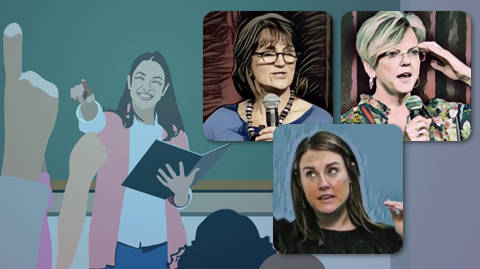
Chicago Metro Area, IL | April 25 - 26, 2024
Don’t miss out! Join expert speakers Michelle Garcia Winner, MA, CCC-SLP, Dr. Pamela Crooke, PhD, CCC-SLP and Kari Zweber Palmer, MA, CCC-SLP in the beautiful Chicago Metro Area for two days of in-person learning! Earn a Certificate of Completion and up to 11 hours of CE credit, for eligible professionals.
To use at home & school
Our free stuff portal is filled to the brim with teaching ideas, downloadable thinksheets & video lessons to foster the development of social competencies across all ages.
Social, emotional & academic learning resources across all ages.
The Social Thinking Methodology has been a guiding resource for schools, clinics, individuals, and families around the world for more than 25 years. Our work supports individuals' social, emotional & academic learning, whether neurotypical or Neurodivergent, with or without diagnosis. Our materials are helpful for students with solid to strong expressive and receptive language skills in mainstream and special education. They can be used across developmental ages to support the development of social competencies, flexible thinking & social problem solving to improve: conversation & social connection , executive functioning , friendship & relationship development, perspective taking , self-regulation , and Social Thinking Vocabulary . Help us protect the fidelity of this body of work and be informed about how you can/can’t use our materials considering our intellectual property, copyrights and trademarks .
Products for All Ages
- Visual Supports
Online Training
Free Webinars
Article Library
Digital Products
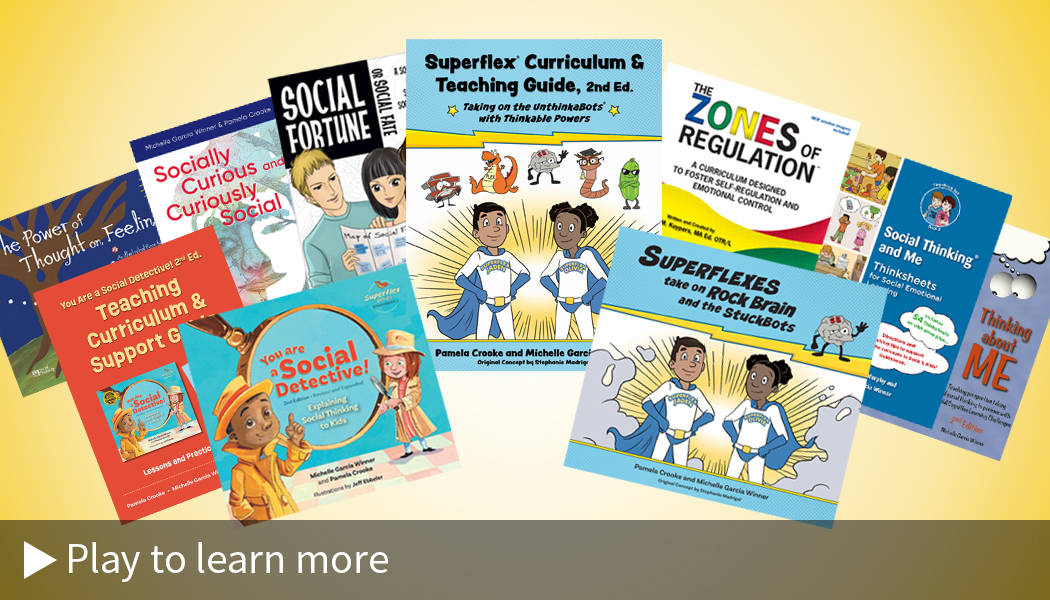
Teachers, speech-language pathologists, clinicians, behavior specialists, and parents are using our expansive collection of curricula, books, games, and posters to teach social competencies to social learners ages 4 and up.
While our deeper work is for individuals with social learning differences and/or challenges (ADHD, twice exceptional, social communication differences, autism spectrum levels 1 and 2, and other social, emotional, and cognitive learning differences (with diagnoses or without), our work is also being adopted into mainstream classrooms and workplaces around the world to improve social, emotional, and academic learning for all.
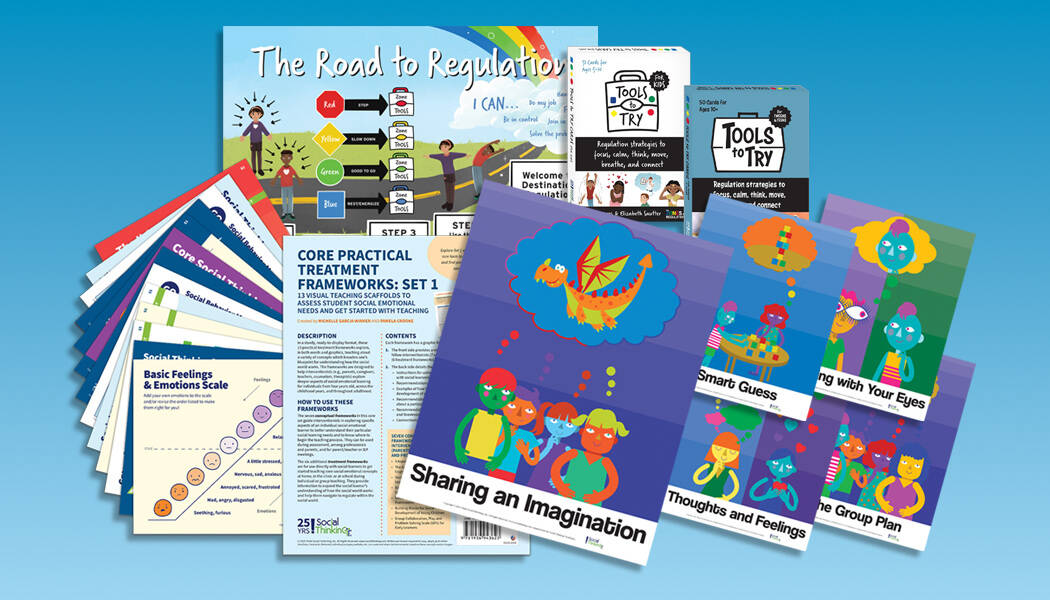
Posters, Games & Visual Supports
Our visual supports provide a fun, engaging way for your students to learn about their own thoughts, feelings, and reactions and of those around them. With powerful visual supports students can more easily connect with social concepts and apply them to their own lives. As an added bonus, our visual supports are versatile and can be used in a variety of settings from the classroom or clinic to your home.
Spark student engagement & raise social awareness—there’s something for everyone.
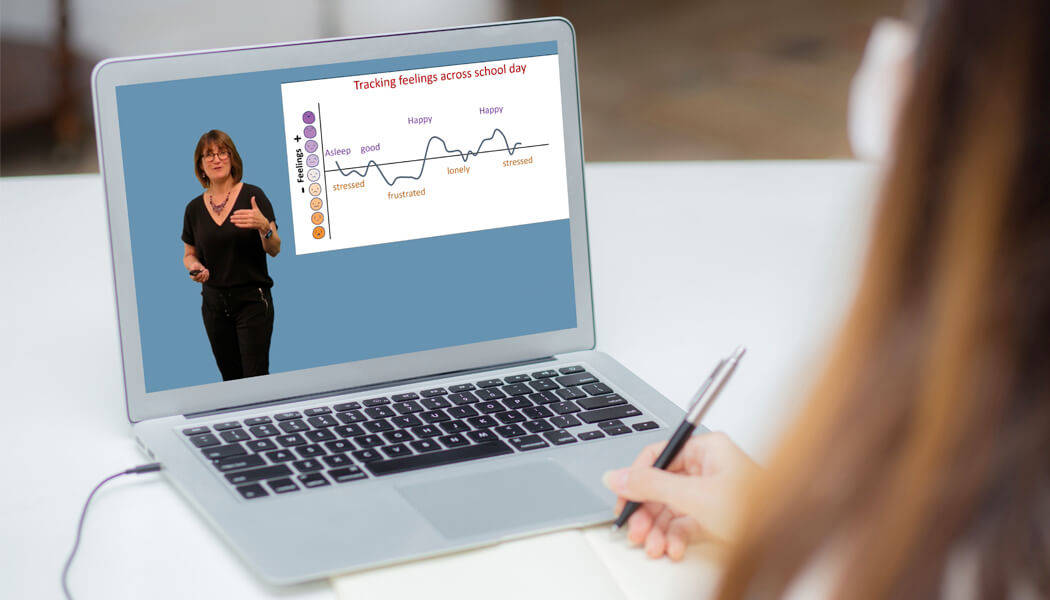
Utilizing more than 25 years of clinical practice and the latest research, these one-of-a-kind online training courses explore a large range of aspects required for developing social competencies, including self-regulation, executive functioning, social problem-solving, and much more. These courses have been watched and raved about over 50,000 times from all around the world!
This is your opportunity for deeper learning and to earn CE Credit (for select professionals).
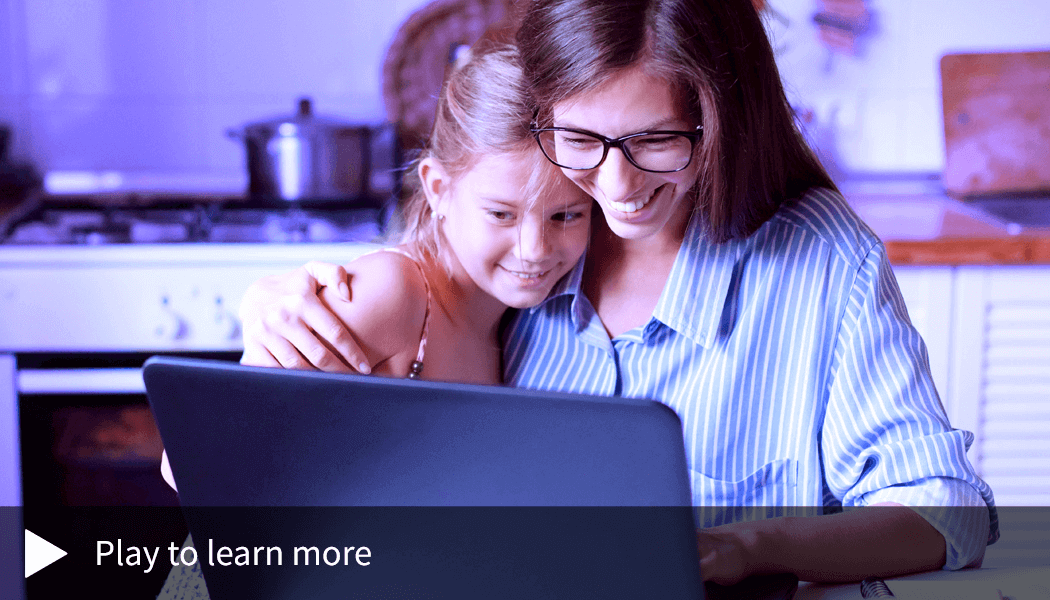
Explore how to teach a variety of core Social Thinking concepts—for free. Browse our entire webinar collection and discover strategies to help people of all ages develop social competencies, self-regulation, social skills, social-emotional understanding, flexible thinking, and more!
Our webinars are not pre-approved for credit by continuing education organizations. However, all participants can download and print a Certificate of Completion.
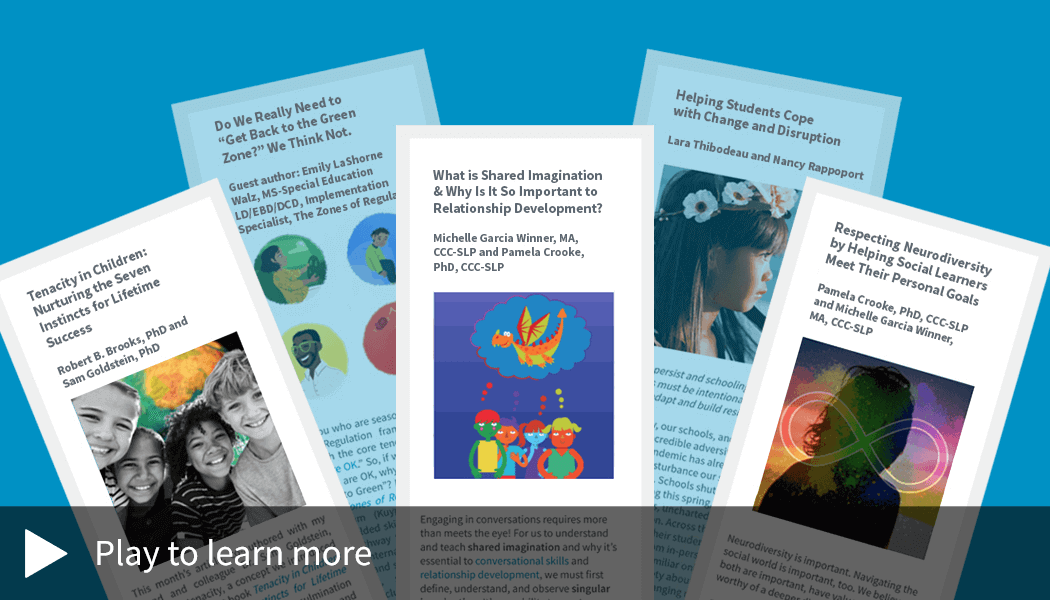
Social Thinking is proud to provide an extensive collection of free articles devoted to helping individuals build stronger social awareness and social functioning using the Social Thinking Methodology.
Browse our library of 100+ free articles and learn strategies you can start using right away. We’re constantly adding material based on the latest research and our evolving client work—so visit our library often and stay informed!
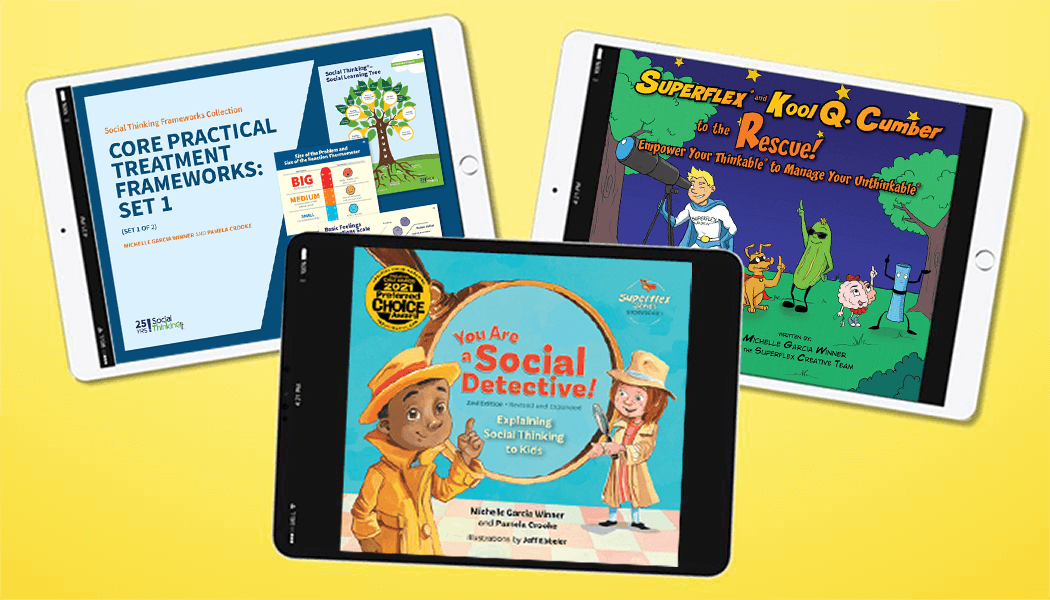
Our newest and most popular digital products make it easy for children to explore social emotional learning.
Build social awareness and vocabulary with our award-winning You Are A Social Detective, Social Thinking and Me & Superflex curriculum.
Teach strategies to help students better problem solve & self-regulate with our all new Social Thinking Frameworks collection.
Best-Selling Series
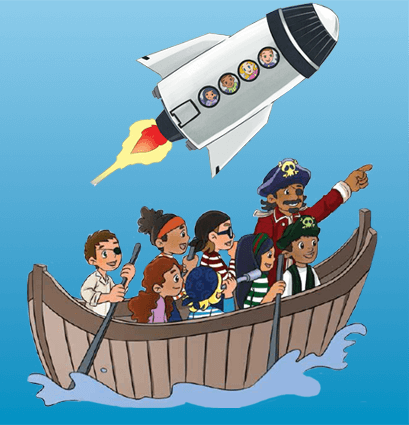
We Thinkers! Series
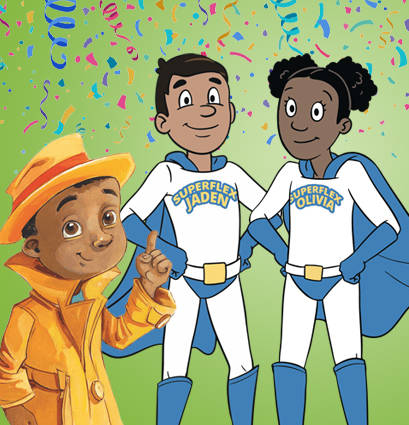
Superflex Series
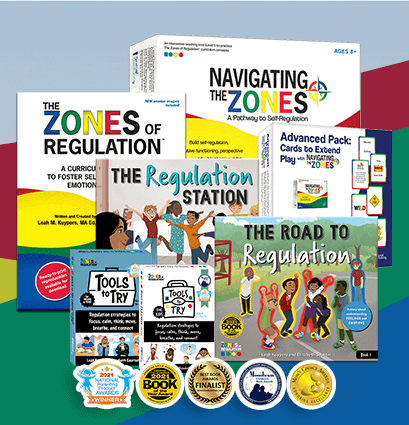
Zones of Regulation
Browse by age.
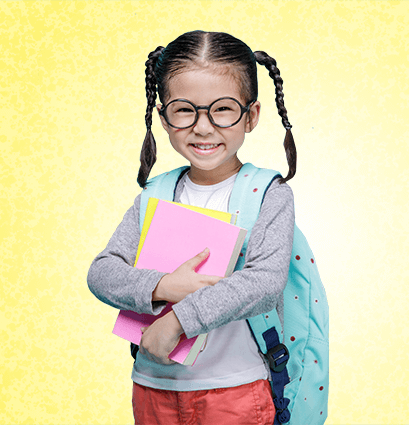
Early Learners (Ages 4-7)
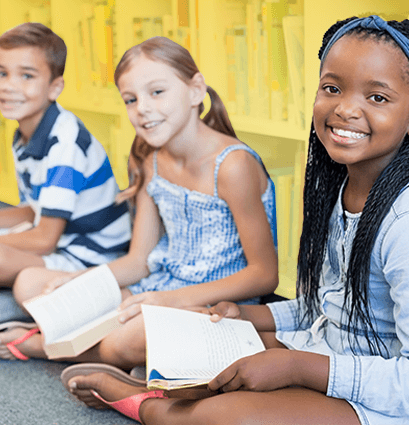
Elementary School (Ages 8-11)
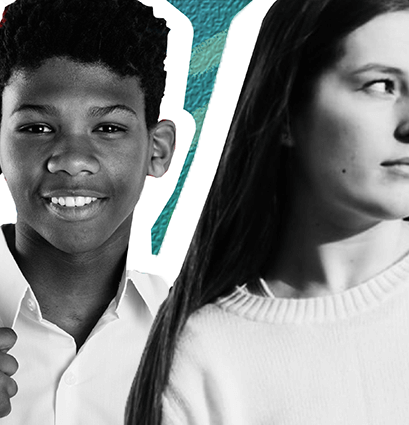
Tweens & Teens


Young & Mature Adults
Practical strategies taught by thought leaders.
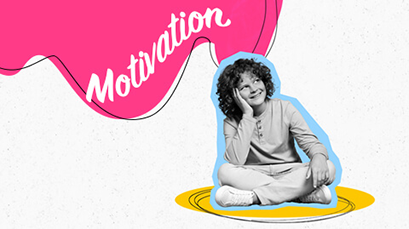
Practical Strategies to Help Individuals Rally Their Motivation
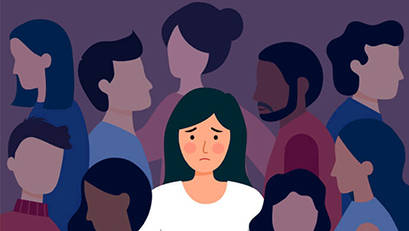
Combating Loneliness and Misbehavior
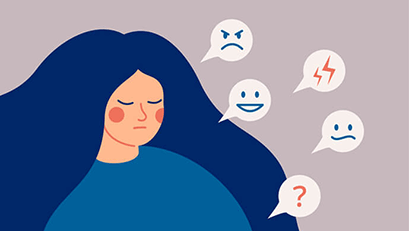
What’s Alexithymia? and How Does It Affect Emotional Regulation and Awareness?
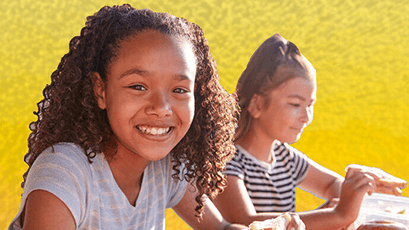
5 Critical Life Skills
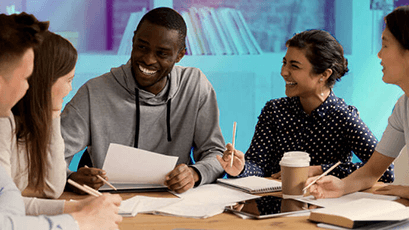
Small Talk & Conversations
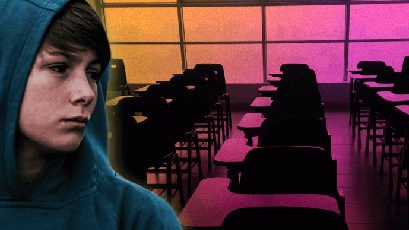
What’s It Mean to “Behave”?

What’s a Friend, and Do I Really Need Friends?

Resilience in an Uncertain Time: Supporting Students and Families Now and Later

Defining 7 Aspects of Tenacity & Exploring Strategies for Social Problem Solving

Raising an Organized Child: Strategies to Promote Executive Functions
Our newest webinars.
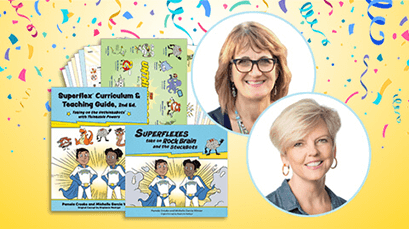
Superflex 2nd Edition Kit Launch Party
May 9, 2024 | 9:00 AM Pacific
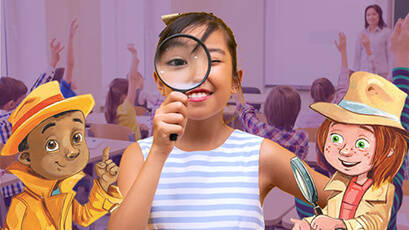
Social Detective Thinking to Start the School Year
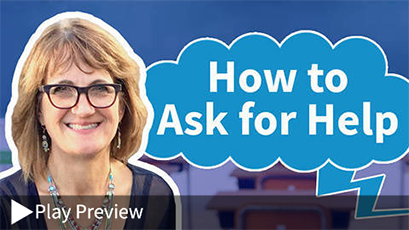
How to Ask for Help
Why It’s Hard & How We Can Help
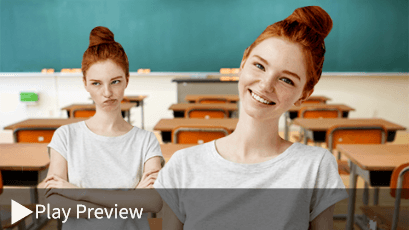
Perspective Taking in the Classroom
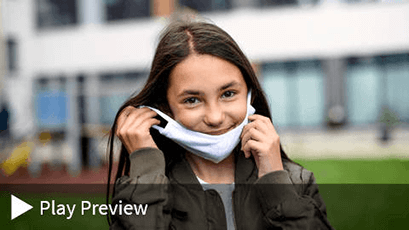
Face-to-face communication is a thing again! Wait, how do we teach that?
How Social Emotional Learning Can Ease the Transition Back to School
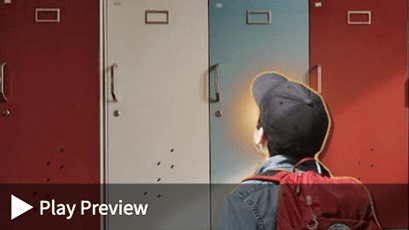
Exploring Our Children’s Stress
Tips & Tools for Adapting Teaching to Students’ Needs
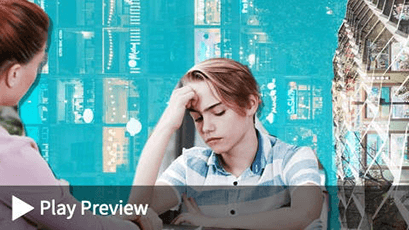
Demystifying Executive Functions
What They Are and How to Teach Them
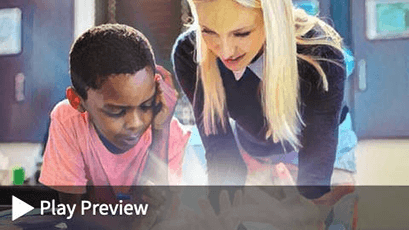
Understanding Self-Regulation
Help Your Students Learn to Help Themselves
Must-Read Articles
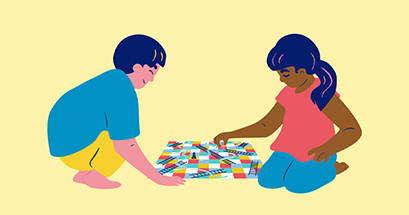
The 3 Parts of Play: Teaching Planning and Executive Functions
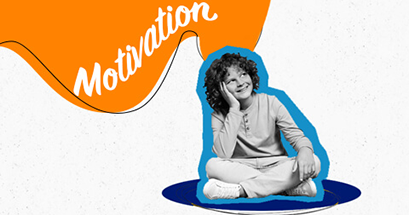
How Can We Rally Our Motivation?
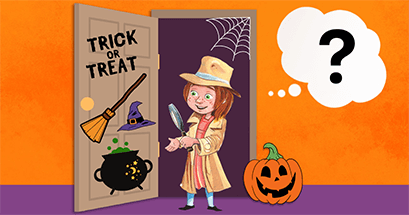
One more BOO-tiful way to Teach Social Concepts using a Halloween Theme

Initiating Connection Is an Antidote to Loneliness
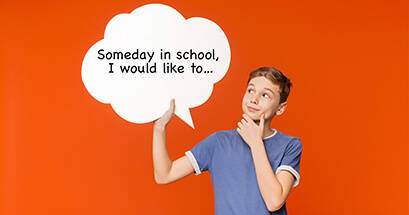
Empowering Student Voices: The Transformative Impact of Student-Led Social Learning & Advocacy
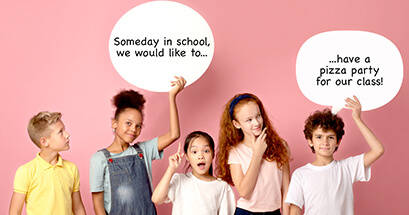
How to Foster Students’ Flexible Thinking & Advocacy Skills Using Future Thinking: The Somedays Activity
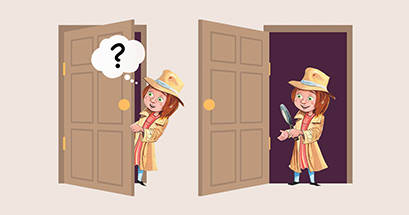
DO ObseRve (DOOR): A Practical Social Observation Strategy for Managing Social Transitions

The ABCs of Summer Boredom: Awareness, Curiosity, and Action
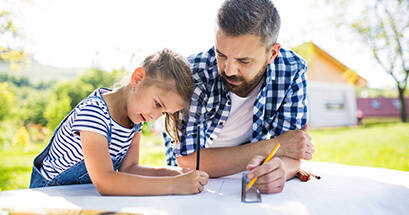
Two Simple Executive Function Strategies to Avoid Family Stress & Stay Connected During Summer Break
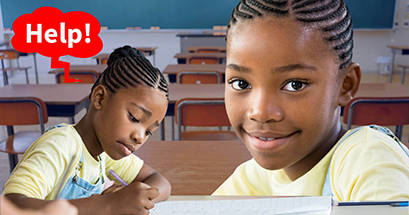
Teaching an Essential Life Skill: How to Ask for Help
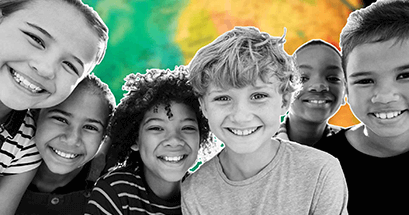
Tenacity in Children: Nurturing the Seven Instincts for Lifetime Success

Respecting Neurodiversity by Helping Social Learners Meet Their Personal Goals
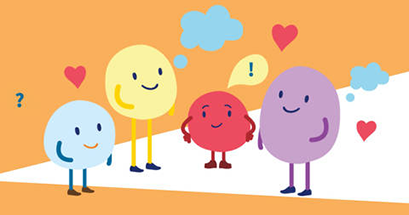
Social Perspective Taking & The 5 Steps of Being with Others
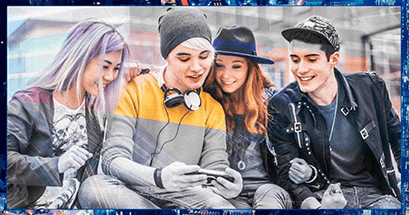
10 Truths & Tips for Making and Keeping Friends

Three Ways to Advocate for Students Who Appear Persistently “Checked Out”
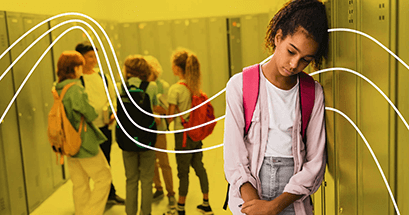
Break Through Students’ Social Anxiety Barrier: A Strategy for Student-Teacher Communication

Social Thinking® in the World of Online Learning with More Literal-Minded Social Learners

Social Metacognition: Using Social Emotional Learning to Engage Hope

14 Tips to Help All Kids Learn to Manage Anxiety
Digital curricula, storybooks & visual supports.
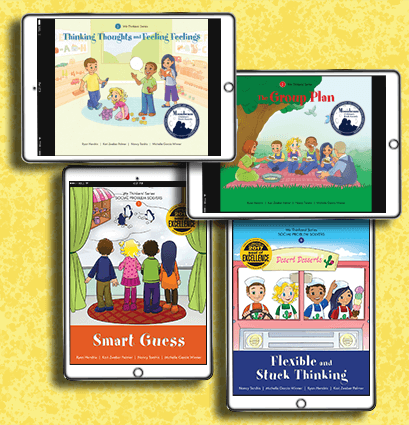
We Thinkers! Storybooks
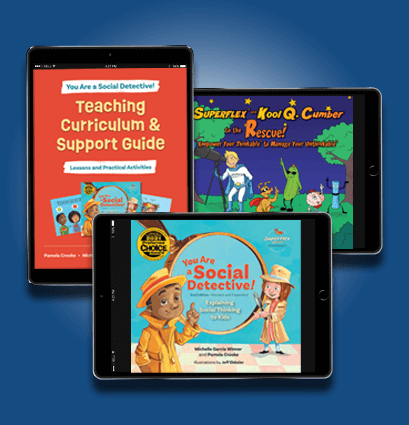
Social Detective & Superflex
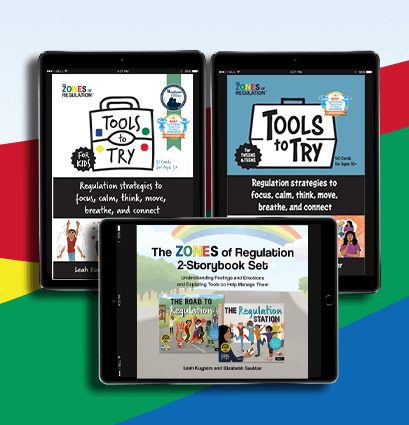
Important Intellectual Property Information
Our teachings help engage people in social and emotional learning, not only about themselves but about others. help us protect the fidelity of this body of work and be informed about how you can/can’t use our materials., what is social thinking.
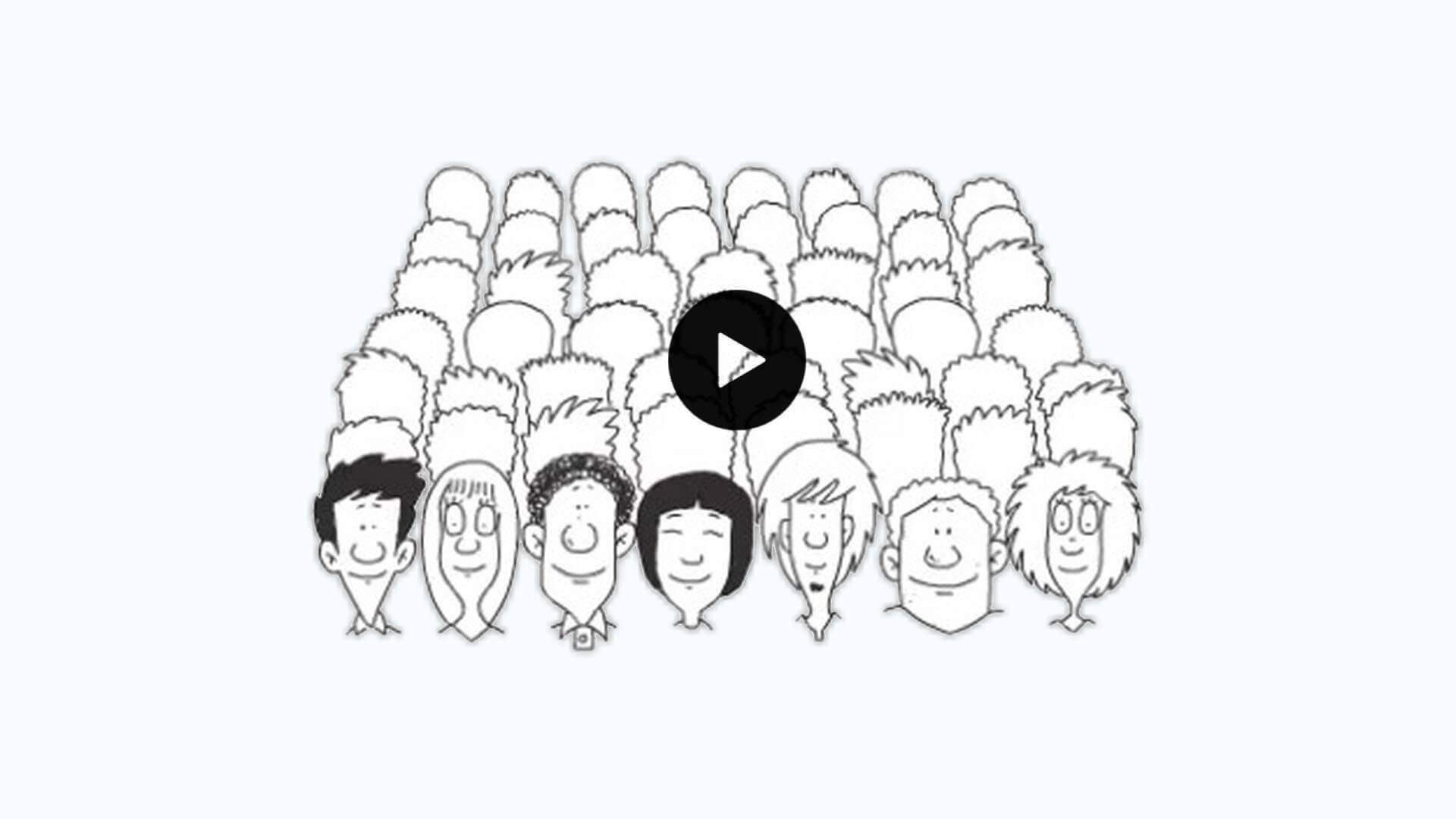
There are 3 distinct yet overlapping definitions:
What do we mean when we say, "social thinking?" We have a lot of information to share. Here are three ways to understand how we use the words "social thinking:"
- The Business
- The Methodology
Watch the video or browse below to learn more!
Embracing Equity in SEL
Learn what social thinking is doing to play a greater role in eliminating systemic and unconscious biases in race, gender, and neurodiversity within the materials we produce., helping you help others.
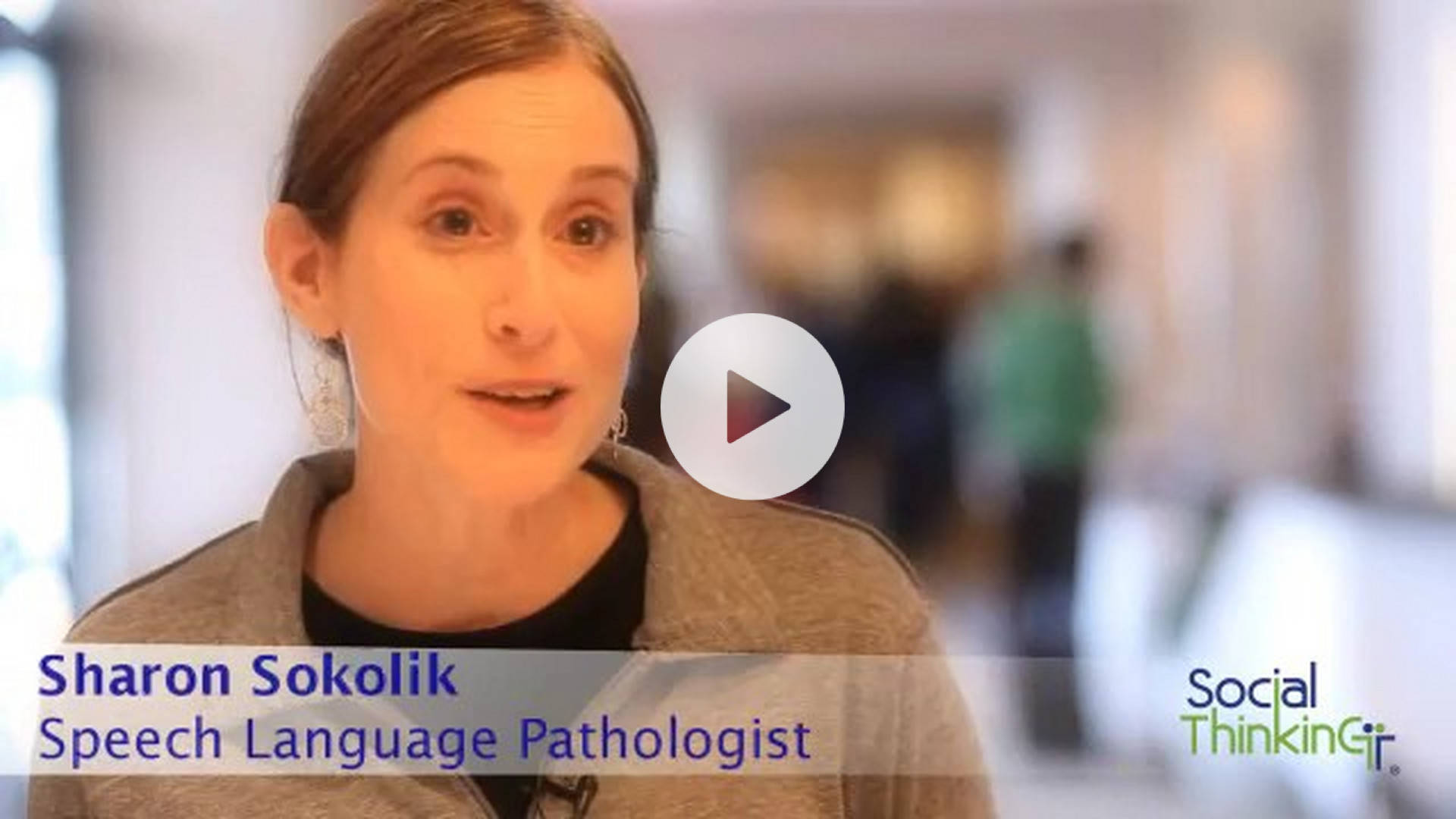
Over time, our teachings can help people cultivate relationships and improve performance at school and at work. For 25 years our experts have been a guiding resource for schools, clinics, and families around the world, and we’re here for you, too. Whether you're teaching individuals with ADHD, autism spectrum (levels 1 or 2), social communication disorders, or an entire mainstream class-our strategies can help you help them.
This has been a game changer for helping general education teachers. We have been using the Social Thinking Methodology with our students, they are making friends, are more successful academically, and generally happier in all they do. Thank you! - Jennifer, Special Education Teacher
What People Are Saying About Social Thinking
Parents & Families
Elementary School
Mental Health & Clinicians
Speech Language Pathologists
Adult Clients
Strategies for all ages
Learn essential Social Thinking concepts for free—8 webinars to choose from, taught by our expert practioners.
Social thinking speakers: global training experts.
The Social Thinking Training and Speakers' Collaborative (STTSC) consists of 13 clinicians, including Michelle Garcia Winner and Dr. Pamela Crooke , who train around the world on the Social Thinking Methodology in addition to working closely with schools, clients, and families. All of our speakers have an active caseload and provide training to help schools embed Social Thinking’s teachings across all aspects of the educational day in public and private schools. We also work with universities as well as businesses to help adults continue to develop stronger social communication skills. Please note that the members of our STTSC are the only people licensed and approved to give training on the Social Thinking Methodology.
The speaker did an excellent job at keeping our attention and broke the information down in a way that was easy to understand and gave us a process to help ensure we could implement what we learned. - Special Ed. Teacher, School Training

Personalized Training for Your School or Clinic
Our methodology.
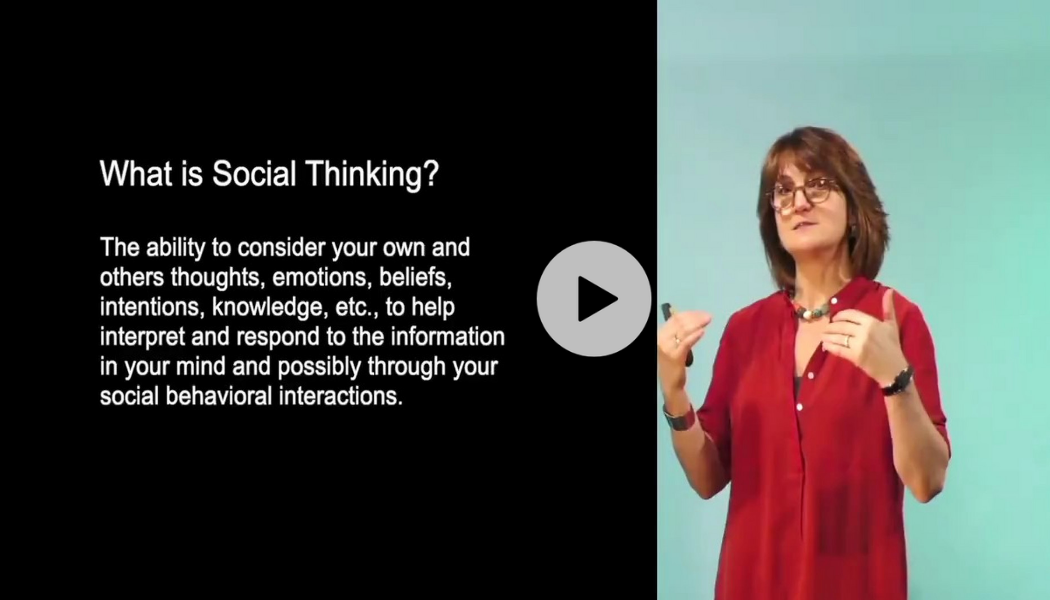
Strategies to Build Social Competencies
The Social Thinking Methodology provides evidence-based strategies to help people ages four through adult develop their social competencies, flexible thinking & social problem solving to meet their own social goals and improve:
- Conversation & social connection
- Executive functioning
- Friendship & relationship development
- Perspective taking
- Self-regulation
- Social Thinking Vocabulary
Your Shopping Cart
Your Savings
Order Subtotal

Social Problem Solving Booklet

Social Problem Solving Workbook
Which 25 no preparation social problem solving worksheets helps students on discover to solve troubles instead of equitable reacting to them. Undergraduate will learn and practice using one 4 step usage to dissolve problems that they meet in all full life. These wish help collegiate learn to make better choices send at school and at home and can can used as a workbook, separate worksheet, in smal group oder individual lessons!
DOWNLOAD PREVIEW
Looking since more social trouble solving activities to use with your students? Check out this social problem solving bundle and storing 20%!
************************************************************************************************
The following workbook are included:
“Social Problem Solving Self Reflection” Worksheet
“The Problems I Experience” Worksheet
“Reacting V. Problem Solving” Worksheet
“What Is Good Problem Solving?” Worksheet
“Problem Solving Steps” Worksheet
“Considering Consequences” Worksheet
“Problem Solving Strategies” Worksheet
“When Problem Resolution Remains Hard” Worksheet
3 Social Problem Solving Thought Worksheets
14 Social Problem Dissolve Role Play Worksheets
”Wrap-Up” Worksheet
For more information please see the preview.
Ideas For Use:
Gregarious issue removing lessons or shallow groups
Social key lessons alternatively small groups
As a trail up to social problem solving lessons
With students who fight with impulse control
With students who can ADHD
With students who struggle with effective decision making
What People Are Saying About This Resource:
Stephanie said "Very easy to use, express you!"
Reanne said "Can't expect into use this!!! A was exactly what I was looking for."
**Please free your money as soon as your receive them. The links will pass after 24 hours. If you cannot get go your resources in to timeframe, please e-mail me at [email protected] the ME becoming make sure you get what you purchased.
More resources thou are sure to loving:
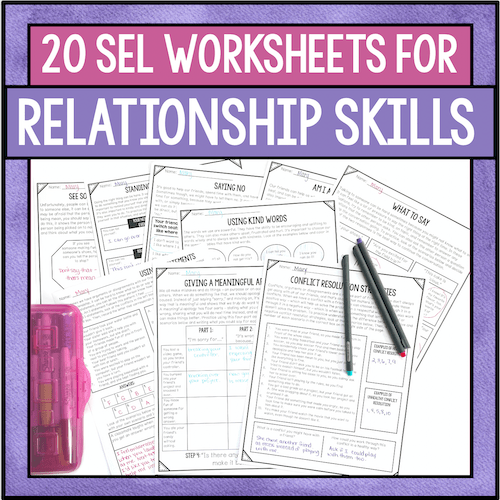
Relationship Skills Worksheets: Friendship, Conflict Resolution, & Social Special
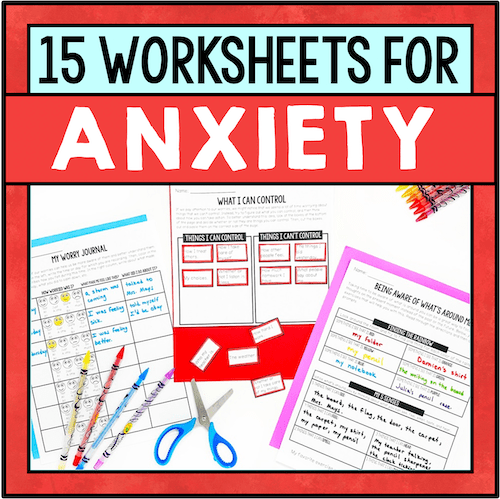
Worry Press Anxiety Worksheets For Lessons On Identifying Fears & Coping Skills
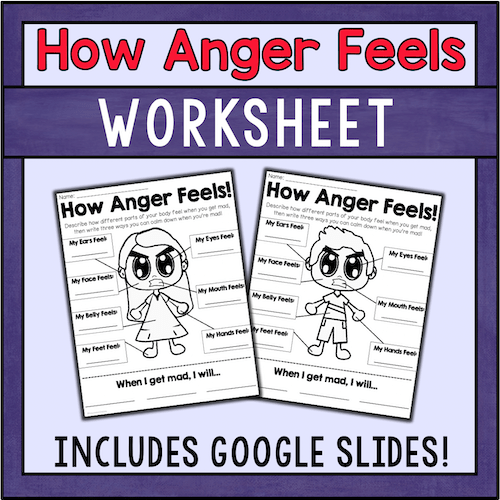
Anger Management Worksheet - How Furor Feels
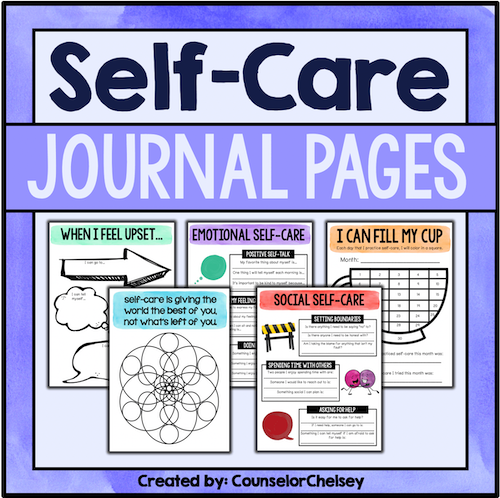
Self Care Journal Links
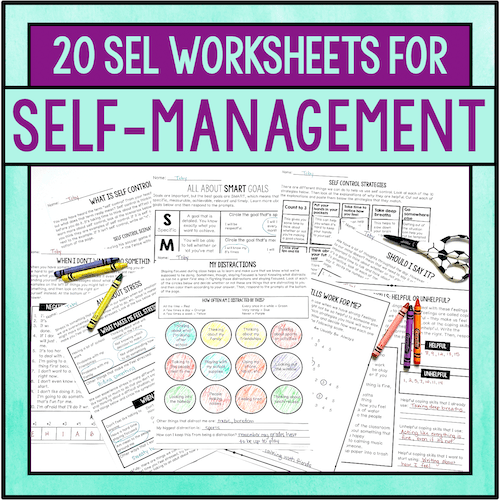
Your Management Worksheets: Executive Works, Coping Capabilities & Self Control

Join Pilot Waitlist

Home » Blog » General » High School Social Problem Solving Lesson Plan

High School Social Problem Solving Lesson Plan
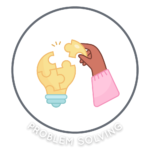
Why Focus on High School Social Problem Solving?
High school students need to develop resilience, empathy, assertiveness, and decision-making skills for productive social interactions. This High School Social Problem Solving Lesson Plan aims to facilitate that growth. It’s a surefire way to empower your students, boosting their confidence and overall mental well-being. Download this free worksheet mentioned in the lesson plan below.
Breaking Down the High School Social Problem Solving Lesson Plan
Let’s delve into the specifics of this lesson plan designed to develop social problem-solving skills in high school students. The beauty of this plan is that it requires no prep-time – you can dive right in!
Objective: To empower high school students with the essential strategies for solving social problems, making informed decisions, empathizing with others, and communicating assertively.
Materials: None – this is a discussion-based activity.
Duration: Roughly 1 hour
1. Identifying Social Problems (10-15 minutes)
Start with a discussion about the social problems high school students may encounter. This can be conducted in small groups or pairs.
2. Empathizing: Understanding Different Perspectives (10-15 minutes)
Choose a few scenarios from the previous discussion. Invite students to consider the various perspectives involved, promoting empathy and understanding.
3. Generating Solutions: Creative and Critical Thinking (10-15 minutes)
Now, guide students to brainstorm possible solutions for the chosen scenarios. Encourage them to consider the potential outcomes of each approach.
4. Decision Making: Evaluating Solutions (10-15 minutes)
Discuss the potential consequences of each solution. Teach students to weigh the pros and cons of each option, enabling them to make sound decisions.
5. Reflection: Learning Takeaways (5 minutes)
End with a reflection session. Invite students to share what they’ve learned and how they plan to apply these skills in real life.
Quick, No-Prep High School Social Problem Solving Activities
- Role-Play Scenarios: Use role-playing to allow students to practice social problem-solving skills in real-time.
- Daily Dilemmas: Start each session with a social problem or dilemma for students to solve, fostering practical learning.
- Interactive Games: Incorporate games like ‘what would you do if…’ or ‘social problem-solving charades’ to make the learning process more engaging.
- Everyday Speech Printable Problem-Solving Worksheet: Download the worksheet at the top of this post, discuss the five scenarios given, and have your students focus on coming up with multiple solutions, not just one for each problem.
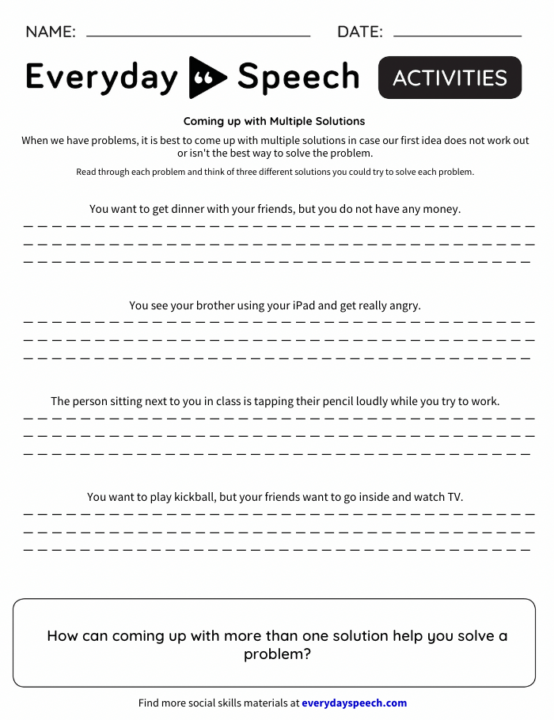
Sample Video
Students learn best from watching real students their own age model skills. Try out this sample video-modeling lesson below. We offer our entire Social-Emotional Learning platform free for 30 days here !
Related Blog Posts:
Free High School Problem Solving Material
Free High School Conversation Skills Material
Looking for free social skills samples click here, free elementary play skills lesson.
The playground is more than just a place for physical activity; it's a social hub where important life lessons unfold. For special educators, teaching students to include everyone on the playground is vital in fostering an environment of empathy and respect. Keep...
Free Elementary Perspective Taking Goal Poster
Download Activity and Lesson Plan In need of a resource for teaching perspective-taking to your elementary students? Look no further, download our free elementary perspective-taking goal poster! Teaching Perspective Taking to Elementary Students You can successfully...
Free Elementary Handling Change Lesson
Navigating the emotional waves of the classroom is a daily reality for elementary students. As special educators, teaching them how to self-regulate using tools like Everyday Speech's "Self-Controller Scanner" can be game-changing. Keep reading for a free elementary...

FREE MATERIALS
Better doesn’t have to be harder, social skills lessons students actually enjoy.
Be the best educator you can be with no extra prep time needed. Sign up to get access to free samples from the best Social Skills and Social-Emotional educational platform.
Get Started Instantly for Free
Complete guided therapy.
The subscription associated with this email has been cancelled and is no longer active. To reactivate your subscription, please log in.
If you would like to make changes to your account, please log in using the button below and navigate to the settings page. If you’ve forgotten your password, you can reset it using the button below.
Unfortunately it looks like we’re not able to create your subscription at this time. Please contact support to have the issue resolved. We apologize for the inconvenience. Error: Web signup - customer email already exists
Welcome back! The subscription associated with this email was previously cancelled, but don’t fret! We make it easy to reactivate your subscription and pick up right where you left off. Note that subscription reactivations aren't eligible for free trials, but your purchase is protected by a 30 day money back guarantee. Let us know anytime within 30 days if you aren’t satisfied and we'll send you a full refund, no questions asked. Please press ‘Continue’ to enter your payment details and reactivate your subscription
Notice About Our SEL Curriculum
Our SEL Curriculum is currently in a soft product launch stage and is only available by Site License. A Site License is currently defined as a school-building minimum or a minimum cost of $3,000 for the first year of use. Individual SEL Curriculum licenses are not currently available based on the current version of this product.
By clicking continue below, you understand that access to our SEL curriculum is currently limited to the terms above.
404 Not found

IMAGES
VIDEO
COMMENTS
Use the 71 social problem-solving scenarios to have your students get great experience practicing how to solve a social problem. Also, included are 6 blank scenarios. Then laminate them so you can use them over and over again. Therefore, create social problems that the student experiences and needs help solving.
There are several reliable websites and resources where you can find free social problem solving worksheets: EverydaySpeech: EverydaySpeech offers a wide range of free social problem solving worksheets for individuals of all ages. Their worksheets are designed by experts in the field and cover various topics related to social problem solving.
Here are some free social problem solving worksheets that you can utilize: Worksheet 1: Identifying the problem: This worksheet helps individuals identify and define the social problem they are facing. It prompts them to describe the situation, their feelings, and the impact of the problem on themselves and others.
Social problem-solving model. This model focuses on solving the problem "as it occurs in the natural social environment," combined with a general coping strategy and a method of self-control (Dobson, 2011, p. 198). ... Problem-Solving worksheet. Imagining an existing or potential problem and working through how to resolve it can be a ...
Many of us opt to keep to ourselves rather than strike up a conversation with a stranger, but it doesn't have to be this way. Step one - Identify the reasons for avoiding small talk. Step two - Choose a context for engaging in small talk. Step three - Find a topic for making the connection.
Description. This no prep resource teaches 4 steps to help students solve problems instead of just reacting to them! Includes 3 role play worksheets to help students practice these 4 steps! Can be used in individual or group sessions. This resource is part of a bigger Social Problem Solving Workbook. Check it out for more role play and ...
• P. 5: "Problem Solving Strategies" Worksheet • P. 6-7: "Practicing Problem Solving" Worksheets Ideas For Use: • These worksheets can be used as individual worksheets, or used together as a workbook. • This resource is great for use with: • Social problem solving lessons or small groups • As a follow up to social problem ...
4.8. (37) FREE. PDF. This no prep resource teaches 4 steps to help students solve problems instead of just reacting to them! Includes 3 role play worksheets to help students practice these 4 steps! Can be used in individual or group sessions.This resource is part of a bigger Social Problem Solving Workbook. Check it out for more role play and ...
Practicing social problem solving is a key component of social skills training. This worksheet on Social Problem Solving allows your clients to define the problems they are facing and rate the potential solutions from low to high efficacy. Based on the rating, therapists can instruct clients to practice their social reasoning during sessions ...
worksheet. Guide your clients and groups through the problem solving process with the help of the Problem Solving Packet. Each page covers one of five problem solving steps with a rationale, tips, and questions. The steps include defining the problem, generating solutions, choosing one solution, implementing the solution, and reviewing the process.
These 25 no prep social problem solving worksheets helps students to learn to solve problems instead of just reacting to them. Students will learn and practice using a 4 step process to solve problems that they face in every day life. These will help students learn to make better choices both at sc. Subjects:
Conflict Resolution Worksheets. 1. Social Problem Solving Worksheet. Conflict resolution is, in essence, a social problem-solving situation. In this worksheet, we will follow the steps for problem-solving, with an important addition (calm-down): Calm down so that you can deal with the conflict; What is the problem/conflict; Listen to the other side
Here are 5 steps to help kids learn social problem solving skills: 1. Teach kids to communicate their feelings. Being able to openly and respectfully share emotions is a foundational element to social problem solving. Teaching I statements can be a simple and effective way to kids to share their feelings. With an I statement, kids will state ...
Consider your own behavior, as well as external factors. Define your problem. Be as clear and comprehensive as possible. If there are many parts to your problem, describe each of them. TIP: If you find it difficult to separate your emotions from the problem, try to complete this step from the perspective of an impartial friend.
Explain how using structured problem solving and decision making can benefit the person. ... SODAS Social Problem Solving and Decision Making Techniques for Working with Transition Age Youth and Young Adults Author: Roberta Walker Created Date: 10/10/2016 4:55:35 PM ...
A more detailed description and further examples of each worksheet can be found in Beck, J. S. Cognitive Behavior Therapy: Basics and Beyond, 3rd ed. (2020), and Beck, J. S. Cognitive Therapy for Challenging Problems (2005). As noted in these books, the decision to use any given worksheet is based on the
Like most of our resources, this PDF is available to download and print at just the click of a button. That way, you can save time preparing your lessons, and dedicate a little more to the things that matter most, like teaching! To use this size of the problem worksheet, all you need to do is hit the download button.
There are several online resources where you can find free problem solving worksheets: Educational websites: Many educational websites offer free resources for problem solving and social emotional learning. Examples include EverydaySpeech, Education.com, and Teach-nology. Social emotional learning resources: SEL-focused websites and ...
Understanding social inferencing and non-verbal communication can be so difficult for some students to master. This time saving, multi-level resource features a variety of cards and worksheets to improve students' social skills, problem solving, and inferencing abilities. Task cards feature 30 diffe
Social, Emotional & Academic Learning Resources Across all Ages. The Social Thinking Methodologyhas been a guiding resource for schools, clinics, individuals, and families around the world for more than 25 years. Our work supports individuals' social, emotional & academic learning, whether neurotypical or Neurodivergent, with or without diagnosis.
Such 25 no set social problem solving worksheets helps students to learn to solve problems instead on just reacts to them. Students will learn both practice using a 4 step process to solve problems such it face in every daylight life. These wants help college learn up make better choices both at s
1. Identifying Social Problems (10-15 minutes) Start with a discussion about the social problems high school students may encounter. This can be conducted in small groups or pairs. 2. Empathizing: Understanding Different Perspectives (10-15 minutes) Choose a few scenarios from the previous discussion. Invite students to consider the various ...
Building Problems Solving Capabilities: Great School Worksheets That Work | Everyday Speech. Learning to problem decipher is an essential skill that has pre-owned not only continuously childhood but also into adulthood. Social problem solving is the ability to change or adapt to undesired occasions that arise constant our day.